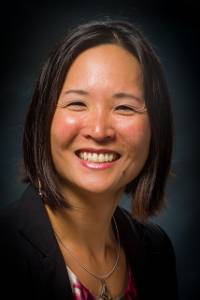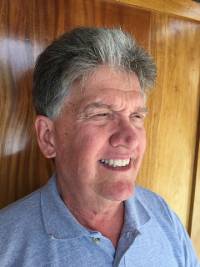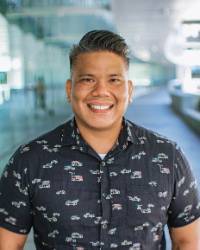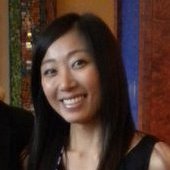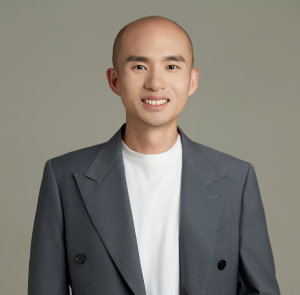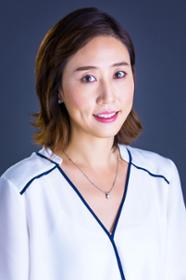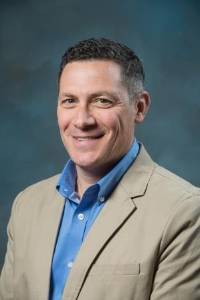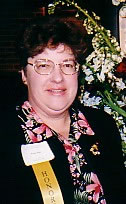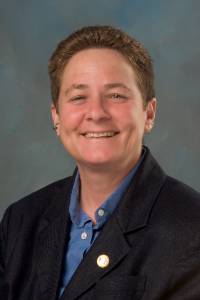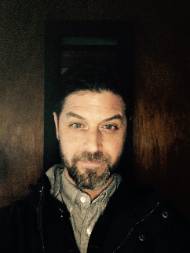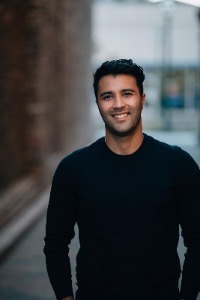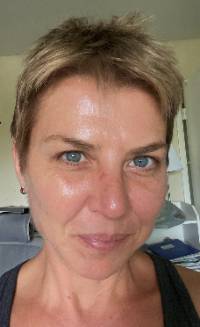Faculty and Staff
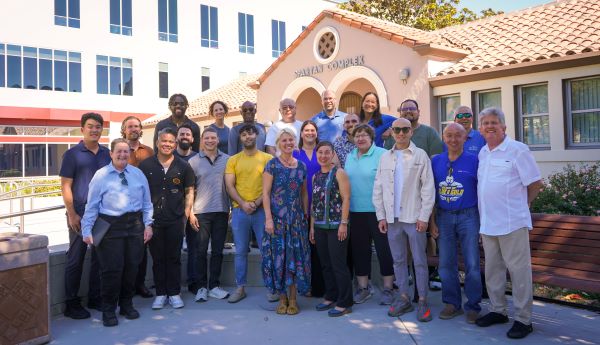
The Department of Kinesiology is comprised of 22 tenured and tenure-track faculty, 20 lecturers, 35+ activity instructor faculty,
and 5 staff. Phone, email, and brief descriptive information are listed below. If
you have program-specific questions, please contact the appropriate coordinator or
manager directly.
Department Chair
Tamar Z. Semerjian, Ph.D.
Professor
Spartan Complex 116
408-924-3069
Professor Bio
Dr. Tamar Z. Semerjian received her B.A. degrees in Human Biodynamics and Psychology
at the University of California, Berkeley, and her M.A. and Ph.D. in sport psychology
from the department of Health, Leisure, and Sport Studies from the University of Iowa.
She is the director of the
Silicon Valley Health Aging Partnership (SVHAP).
Dr. Semerjian is currently a Professor of Sport and Exercise Psychology and Chair
in the Department of Kinesiology at San José State University. She teaches several
courses in the department including undergraduate courses in sport psychology, sport
sociology, stress management, diversity stress and health, and graduate courses in
sport psychology and research methods. Dr. Semerjian’s research has included work
with older adults, individuals with spinal cord injury, and transgender athletes.
Generally, her research interests focus on exploring the experiences of marginalized
groups in exercise through the lens of both cultural studies and sport psychology.
In particular she has been interested in the translation of evidence-based health
promotion programs in the community, the effect of exercise on older adults’ self-perceptions,
and the influence of their exercise experience on long-term participation. Because
of her belief in the importance of praxis, she has been active in the aging community,
implementing exercise programs that are affordable and accessible to diverse populations
of older adults.
Education
Ph.D. University of Iowa - Health, Leisure, and Sport Studies (Emphasis: Sport Psychology)
Certificate in Aging Studies; University of Iowa, Iowa City. 1999.
M.A. University of Iowa - Health, Leisure, and Sport Studies (Emphasis: Sport Psychology)
B.A. University of California at Berkeley - Human Biodynamics (Emphasis: Sport Psychology
and Muscle Physiology)
Expertise, Research & Teaching Interests
My area of expertise focuses on the psychology and cultural studies aspects of exercise
across a variety of populations and contexts. My dissertation research focused on
older women’s physical self-perceptions and how they related to their physical activity
participation. I have taught courses in aging and physical activity, as well as implemented
community based partnerships which have allowed students to learn more about exercise
and aging through service learning opportunities. I was the founder of the
Silicon Valley Healthy Aging Partnership, which continues to support community based organizations to offer evidence based-health
promotion programs throughout Santa Clara county. I have published a number of research
studies and chapters related to aging and physical activity.
In addition to a focus on aging, I have also worked in the area of disability as a
member of a research team that created a cutting-edge exercise program for individuals
with spinal cord injuries. My contribution to the team was to consider the psychological
and sociocultural impact of the exercise program. I have also worked with transgender
athletes, and have focused my research in this area as well, primarily in an effort
to advocate for increased inclusion of trans athletes within all sporting and physical
activity contexts. Most recently I have become interested in the use of fitness tracking
applications, and the ways that the use of fitness trackers and the social media that
is often used in conjunction with them impacts individuals’ physical activity experiences.
Courses Taught
KIN 69 Stress Management
KIN 164 Sport Sociology
KIN 167 Sport Psychology
KIN 169 Diversity Stress and Health
KIN 267 Sport Psychology
Selected Publications
Semerjian, T. Z. (in press). Making space: Transgender athletes. In V. Krane (ed.) Sex, Gender, and
Sexuality in Sport. Oxon, UK: Taylor and Francis.
Jeffries, E. C., Hoffman, S. M., de Leon, R., Dominguez, J. F., Semerjian, T. Z.,
Melgar, I. A., et al. (2015).
Energy expenditure and heart rate responses to increased loading in individuals with
motor complete spinal cord injury performing body weight–supported exercises. Archives of Physical Medicine & Rehabilitation, 96(8), 1467-1473.
Butryn, T. M., LaVoi, N. M., Kauer, K.,
Semerjian, T. Z., & Waldron, J. J. (2014).
We walk the line: An analysis of the problems and possibilities of work at the sport
psychology-sport sociology nexus,
Sociology of Sport Journal, 31, 162-184.
Semerjian, T. Z. (2013). Stories from the basement: Narratives on disability. In R. J. Schinke & R.
Lidor (Eds.),
Sport for Peace and Social Justice. Nova Science Publishers.
Semerjian, T. Z. (2010). Disability in sport and exercise psychology. In T. V. Ryba, R. J. Schinke,
& G. Tenenbaum (Eds.),
The Cultural Turn in Sport Psychology (pp. 259-284)
. Morgantown, WV: Fitness Information Technology.
Semerjian, T. Z. (2016). Transgender athletes in inclusive sport spaces. Paper presented at the Social Justice through Sport and Exercise Psychology Conference,
Bowling Green, OH.
Semerjian, T. Z. (2016). Infusing social justice into our teaching. Paper presented at the Social Justice through Sport and Exercise Psychology Conference,
Bowling Green, OH.
Semerjian, T. Z. (2015). Measuring fitness one step at a time. Paper presented at the North American Society for the Sociology of Sport Conference,
Tampa Bay, FL.
Semerjian, T. Z. (2015). A neo-liberal project or community-based participatory research?: A critical look
at the Silicon Valley Healthy Aging Partnership. Paper presented at the International Society for the Sociology of Sport, Paris, France.
Semerjian, T. Z. & Manuel, G. (2014) Implementation and outcomes of evidence-based exercise programs: The mobilization
of town-gown relationships in launching Active Start. Paper presented at the International SFPS Congress of Sport Psychology, Nice, France.
Undergraduate/Graduate Student Research Supervision
Daniel Vega. Topic: An Autoethnographic Examination of the Embodied Experience of
Transitioning While Completing P90X (In progress)
Lisa Lund. Topic: A Comparison of Motivation Patterns among Group-on and Traditional
Bootcamp Participants. (Graduated Summer 2014)
Allan Jong . Title: An Examination of Collegiate Ultimate Frisbee Players’ Values
of Sportspersonship. (Graduated Fall 2011)
Kelley Cadungug. Title: Christian Football Players: Negotiating the Conflicts Between
Sport and Personal Faith (Graduated Fall 2010)
Candice Davis. Title: Confidence Levels of Athletes Returning to Play after Surgery
and Rehabilitation (Graduated Fall 2010)
Janet Snider. Title: Determining Athlete Gender Preference for Athletic Trainers (Graduated
Fall 2010)
Gina Biviano. Title: Athletic Trainers’ Comfort and Competence in Addressing Psychological
Issues of Athletes (Graduated Summer 2010)
Alexis Smith. Title: A Qualitative Analysis of Motivation of Elite Female Triathletes
(Graduated Summer 2010)
Juliet Rose. Title: Self-Objectification and Body Shame as Predictors of Sports Participation.
(Graduated Summer 2008)
Daniel Murphy. Title: Sociocultural Histories of Professional Soccer in the United
States (Late 1800s to the Present). (Graduated December 2007)
Coordinators and Managers
Seung Ho Chang, Ph.D. -
Physical Activity Program Coordinator

Associate Professor
Motor Development and Teacher Education
Physical Activity Program Coordinator
Spartan Complex 111
Erin Siebert, Ph.D.
Undergraduate Coordinator
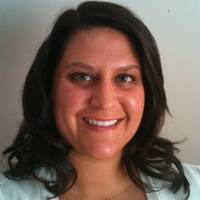
Assistant Professor
Spartan Complex 173C
Undergraduate Coordinator
(408) 924-3207
erin.siebert@sjsu.edu
Daniel Bohigian, MA -
Advising Manager
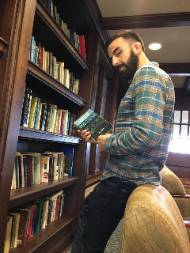
Lecturer
Sport Philosophy
Matthew Bejar, Ph.D. -
General Education Program Coordinator
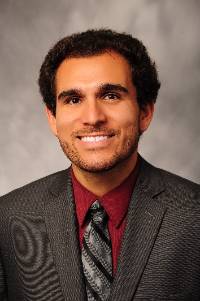
Assistant Professor
Spartan Complex 110
matthew.bejar@sjsu.edu
Cole Armstrong, Ph.D. -
Graduate Coordinator and Internship Manager
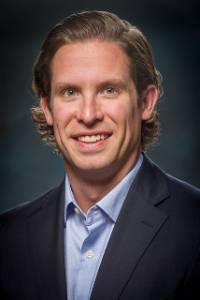
Associate Professor
Spartan Complex 114
(408) 924-8932
Tenured and Tenured-Track Faculty
Cole Armstrong, Ph.D.
Associate Professor
Spartan Complex 114
(408) 924-8932
Professor Bio
Cole Armstrong is an Assistant Professor of Sport Management in the Department of
Kinesiology at San José State University. Prior to joining the faculty at SJSU, Cole
completed his PhD in the Department of Sport Management at Florida State University,
and Masters and Undergraduate degrees at the University of Central Missouri, Dr.
Armstrong teaches primarily in the Sport Management focus area and is consistently
working to develop sport industry opportunities and connections for SJSU students.
A collegiate baseball player at UCM, Dr. Armstrong enjoys participating in a number
of sports and recreational activities including backpacking, golf, hockey, and snowboarding.
Dr. Armstrong is an avid sports fan, especially during international competitions
where he can be found cheering on his native Team Canada.
Education
Ph.D. Florida State University – Sport Management.
M.S. University of Central Missouri – Physical Education, Exercise, and Sport Science.
B.S. University of Central Missouri – Physical Education, K-12.
Expertise, Research & Teaching Interests
Dr. Armstrong earned his Doctoral degree at the Florida State University in Sport
Management where he completed his dissertation by studying the impact sport organizations
have on the development of identity of participating individuals. Dr. Armstrong focuses
his attention on all levels of sport from community sport to professional sport. Dr.
Armstrong’s research interests include new sport franchise development, sustainability
and sport, and how sport participation and fandom influences individual and group
identities.
Courses Taught
KIN 281 – Legal and Ethical Aspects of Sport
KIN 282 – Marketing and Social Aspects of Sport
KIN 283 – Management Leadership and Communication in Sport
KIN 284 – Financial Aspects of Sport
KIN 151 – Sport and Fitness Marketing
KIN 153 – Sport Facility and Event Management
Selected Publications
Davies, M.J., Armstrong, C.G., & Blaskza, M. (2023). Release the Kraken: An analysis of the NHL’s Seattle Kraken
and their Digital Branch Launch. In Mastromartino & Zhang (Eds), Digital Sport Marketing:
Global Perspectives. (pp. 156-170). Routledge. https:/doi.org/10.4324/9781003430353-11
Armstrong, C.G., Davies, M.J., Blaskza, M., & Pegoraro, A. (2023). The Kraken Awakens: Exploring
the Digital Launch of a New Sport Team Brand During a Global Pandemic. International
Journal of Sport Communication. 16(4), 471-481.
https://doi.org/10.1123/ijsc.2023-0148
Delia, E.B., & Armstrong, C.G. (In Press) Sponsorship Goes Social: Analyzing Twitter Users’ Discussions of French
Open Sponsors. In M.D Giardina & B. Smith (Eds), Digital Qualitative Research in Sport and Physical Activity. Abingdon, England: Routledge.
Brandon-Lai, S.A., Armstrong, C.G., Bunds, K.S. (2016) Sport management internship quality and the development of political
skill. Journal of Applied Sport Management, 8(3), 96-111.
Brandon-Lai, S.A., Armstrong, C.G. (2016) Organizational Impression Congruence: A Conceptual Model of Multi-Level Impression
Management Operation in Sports Service Organizations. Sport Management Review. DOI: http://dx.doi.org/10.1016/j.smr.2016.06.002
Bunds, K.S., Brandon-Lai, S.A, & Armstrong, C.G. (2016) An Inductive Investigation of Participants' Attachment to Charity Sports Events:
The Case of Team Water Charity. European Sport Management Quarterly. DOI: 10.1080/16184742.2016.1164212
Delia, E.B., & Armstrong, C.G. (2015). #Sponsoring the #FrenchOpen: An examination of social media buzz and sentiment. Journal of Sport Management, 25(2), 184-199.
Armstrong, C.G., Delia, E.B., & Giardina, M.D. (2014). Embracing the social in social media: An analysis
of the social media marketing strategies of the Los Angeles Kings. Communication & Sport. DOI: 10.1177/2167479514532914
Selected Presentations
Armstrong, C.G., & Kellison, T. (May, 2025). Green Ice in the Emerald City: Retrospecting the Seattle
Kraken’s Environmental Communications Rollout. Paper presented at the annual meeting
of the North American Society for Sport Management (NASSM), San Diego, CA.
Armstrong, C.G., & Davies, M.J., Blaszka, M., Mastromartino, B. (May, 2023). From NHL Seattle to
SeaKraken: Fan perceptions of a new team brand over time. Paper presented at the annual
meeting of the North American Society for Sport Management (NASSM), Montreal, QC,
Canada.
Armstrong, C.G., & Davies, M.J., Blaskza, M. (November, 2022). From concept to Kraken: A longitudinal
examination of a new team brand. Paper presented at the annual meeting of the Sport
Marketing Association (SMA), Charlotte, North Carolina. *Finalist for best paper award.
Davies, M.J., Armstrong, C.G., & Blaskza, M., Koczak, C., Nunez, V.J.I. (June, 2021). Exploring the managerial
perspective on developing a new sport team brand. Paper presented at the annual meeting
of the North American Society for Sport Management (NASSM), Virtual.
Armstrong, C.G., Davies, M.J., Pegoraro, A., & Blaskza, M. (November, 2020). Release the Kraken:
An analysis of a virtual brand launch during a global pandemic. Paper presented at
the annual meeting of the Sport Management Association of Australia & New Zealand
(SMAANZ), Virtual.
Armstrong, C.G., & Blaskza, M. (May, 2020). Fan reactions to building the brand: The case of NHL
Seattle. Abstract published at the annual meeting of the North American Society for
Sport Management (NASSM), Virtual.
Armstrong, C.G., (2016) Professionals in the Making: Examining Socialization, Social Identity, and
Self-Presentation of Future Golf Professionals. Paper presented at the annual meeting
of the North American Society for Sport Management (NASSM), Orlando, Florida.
Armstrong, C.G. (2016) Invited Moderator. San José State University SportsTech Symposium: Social
Media and the Modern Sports Fan. San Jose, California.
Armstrong, C.G., Delia, E.B., & Brandon-Lai, S.A. (2015) Are We Still Winter? Hashtag Legacy a Year
After #wearewinter. Paper presented at the annual meeting of the Sport Marketing Association
(SMA), Atlanta, Georgia.
Brandon-Lai, S.A., & Armstrong, C.G. (2015) Organizational Impression Congruence: A Conceptual Framework for Sport Service
Organizations. Paper presented at the annual meeting of the North American Society
for Sport Management (NASSM), Ottawa, Ontario, Canada.
Brandon-Lai, S.A., & Armstrong, C.G. (2015) Segmentation of “Prosumers” Based on Social Media Usage in a Non-Profit Sports
Organization: Algorithm Development and Between-Group Differences. Paper presented
at the annual meeting of the North American Society for Sport Management (NASSM),
Ottawa, Ontario, Canada.
Delia, E.B., Armstrong, C.G., & Brandon-Lai, S. (2014) The TOP Program and #Sochi2014: Mega-Event Sponsorship Activation
via Twitter. Paper presented at the annual meeting of the Sport Marketing Association
(SMA), Philadelphia, Pennsylvania.
Undergraduate/Graduate Student Research Supervision
KIN 299 Thesis
Anderson-Villela, I., & Armstrong, C.G. (advisor) (2024). Sport and environmental
issues: NCAA student-athletes personal experiences.
KIN 298
Floro, M., Armstrong, C.G. (advisor) (Spring 2024). Workplace Health Promotion Program.
Eisenberger, I., Armstrong, C.G. (advisor) (Spring 2023). The Formation of an Interpersonal
Relationship: The Effect on Rehab Adherence.
Diaz-Ramos, M., Armstrong, C.G. (advisor) (Spring 2023). Power up baby gym: A comprehensive
business plan.
Professional Affiliations
North American Society for Sport Management (NASSM)
Sport Marketing Association (SMA)
Matthew Bejar, Ph.D.
Assistant Professor
Spartan Complex 110
Professor Bio
Dr. Matt Bejar returns to San Jose State University after spending six years at Mount
Mercy University (Cedar Rapids, Iowa) in the Department of Psychology, Sociology,
and Social Work. He taught several courses, including Exercise Psychology, Sport Psychology,
Psychology of Sport Injury and Rehabilitation, and Critical Perspectives in Sport
and Physical Activity. At MMU, he developed a Sport, Health, and Exercise Psychology
minor and Exercise Science major along with several new courses to support those programs.
Additionally, he served as the Faculty Athletics Representative and worked with Project
Connect, a bridge program for first-year students from traditionally underrepresented
and marginalized backgrounds.
Dr. Bejar received his PhD in Kinesiology with a specialization in Sport Psychology
and Motor Behavior from the University of Tennessee, Knoxville in 2016. He completed
his dissertation, entitled “Development of the Running Identity Scale,” under the
supervision of Dr. Leslee Fisher. Prior to that, he earned his MA in Kinesiology with
a concentration in Sport Studies from San José State University in 2013. He completed
his thesis, entitled “Experiences of Athletes from Low-to-Middle Socioeconomic Status
Backgrounds Coping with Injury,” under the guidance of Dr. Ted Butryn. Furthermore,
he received a BA in Psychology and BS in Exercise Science from Gonzaga University
in 2011.
Dr. Bejar’s research interests are centered on running identity, the psychosocial
aspects of injury, and organizational diversity and inclusion in exercise and sport
psychology. He is a member of the Association for Applied Sport Psychology.
In his spare time, Dr. Bejar enjoys running, hiking, playing ultimate Frisbee, rooting
for the Zags, watching horror movies, and cooking.
2016: PhD in Kinesiology and Sport Studies, Concentration in Kinesiology, Specialization
in Sport Psychology and Motor Behavior (University of Tennessee)
2013: MA in Kinesiology, Concentration in Sport Studies (San Jose State University)
2011: BS in Exercise Science, BA Psychology (Gonzaga University)
Expertise, Research & Teaching Interests
Expertise: Exercise and Sport Psychology
Research Interests/Topics:
-organizational diversity and inclusion in exercise and sport psychology;
-intersections between running and cultural identities (e.g., race, gender, size,
class)
-exercise adherence in POTS and mTBI patients
KIN 167 Sport Psychology
KIN 176 Exercise Psychology
Bejar, M. P., Shigeno, T. C., Larsen, L. K., & Lee, S. (2021). Gaining momentum or
still swimming upstream? The state of diversity in the Association for Applied Sport
Psychology. Journal of Applied Sport Psychology. Advance online publication.
https://doi.org/10.1080/10413200.2021.1913452
Raabe, J., Lauer, E. E., & Bejar, M. P. (2021). Mental toughness in youth sport coaches:
A phenomenological exploration. Journal of Applied Sport Psychology. Advance online
publication.
https://doi.org/10.1080/10413200.2021.1922538
Larsen, L. K., Fisher, L. A., Shigeno, T. C., Bejar, M. P., & Madeson, M. N. (2020).
“Do not question authority:” Examining team rules in NCAA Division I women’s basketball.
International Sport Coaching Journal, 7(3), 317-325.
https://doi.org/10.1123/iscj.2019-0077
Bejar, M. P., Raabe, J. J., Zakrajsek, R. A., Fisher, L. A., & Clement, D. (2019).
Athletic trainers’ influence on injured NCAA Division I athletes’ basic psychological
needs during sport injury rehabilitation. Journal of Athletic Training, 54(3), 245-254.
https://doi.org/10.4085/1062-6050-112-18
Fisher, L. A., Larsen, L. K., Bejar, M. P., & Shigeno, T. C. (2019). A heuristic for
the relationship between caring coaching and elite athlete performance. International
Journal of Sports Science & Coaching, 14(2), 126-137.
https://doi.org/10.1177/1747954119827192
Lauer, E. E., Zakrajsek, R. A., Fisher, L. A., Bejar, M. P., McCowan, T., Martin,
S. B., & Vosloo, J. (2018). NCAA DII female student-athletes’ perception of their
sport uniform and body image. Journal of Sport Behavior, 41(1), 40-63.
Bejar, M. P., Fisher, L. A., Nam, B. H., Larsen, L. K., Fynes, J. M., & Zakrajsek,
R. A. (2017). High-level South Korean athletes’ experiences of injury and rehabilitation.
The Sport Psychologist, 31(1), 16-29.
https://doi.org/10.1123/tsp.2015-0060
Bejar, M. P., & Butryn, T. M. (2016). Experiences of athletes from low-to-middle socioeconomic
status backgrounds coping with injury. Journal of Sport Behavior, 39(4), 345-371.
Selected Presentations
Lee, S., Bejar, M. P., & Goodson, A. (2021, October 6-9). “I’m sorry you feel that
way but that wasn’t my intention:” How to apologize with cultural humility [Workshop].
Association for Applied Sport Psychology Conference. Las Vegas, NV, United States.
Presented virtually.
Bejar, M. P., & Raabe, J. (2021, May 13-15). Athletes and athletic trainers’ perspectives
of basic psychological need fulfillment and motivation during sport injury rehabilitation
[Symposium]. German Association of Sport Psychology Conference. Tübingen, Germany.
Presented virtually.
Bejar, M. P., Owens, R., Bennett, H., & Hogue, C. (2020, October 20-24). Advancing
organizational diversity in the Association for Applied Sport Psychology: Four models
[Symposium]. Association for Applied Sport Psychology Conference. Orlando, FL, United
States. Presented virtually.
Bejar, M. P., Shigeno, T. C., Larsen, L. K., & Lee, S. (2019, October 23-36). Gaining
momentum or still swimming upstream? The state of diversity in the Association for
Applied Sport Psychology [Lecture]. Association for Applied Sport Psychology Conference,
Portland, OR, United States.
Undergraduate/Graduate Student Research Supervision
Mentored eight undergraduate students in research at Mount Mercy University
Professional Affiliations
Association for Applied Sport Psychology
American Psychological Association Division 2: Society for the Teaching of Psychology
American Psychological Association Division 45: Society for the Psychological Study
of Culture, Ethnicity and Race
American Psychological Association Division 47: Society for Sport, Exercise and Performance
Psychology
Stanley Butler, Ed.D.

Professor
Spartan Complex 173J
(408) 924-3044
Professor Bio
Dr. Butler is an associate professor of kinesiology at San Jose State University in
San Jose, Calif. Butler teaches graduate and undergraduate courses, as well as general
education and activity programming.
Dr. Butler has been an active member of the SJSU faculty, sitting on committees, achieving
grant funding and assisting with the development of department programming. He served
as the president of African-American Faculty and Staff Association of SJSU from 2000-2005.
In 1994, he received a grant to conduct the first National Youth Sports Program at
SJSU and has received continued funding over the next 13 years to provide opportunities
for over 3,000 youth from urban, underserved communities to participate in educational,
health and fitness development programs. He has also exceeded $1 million dollars in
acquiring external funding and to conduct programs aimed at providing educational
enrichment and life skills development opportunities for underserved youth in urban
areas.
Education
Ph.D. Texas A&M
M.S. Northwestern State University
B.S. Culver-Stockton College
Expertise, Research & Teaching Interests
Research interests lie in the areas of fitness, equity and diversity in sport and
physical activity and youth education and development through sport and physical activity.
His areas of specialization include teacher education, fitness, sport activities,
and African-Americans in sport.
Courses Taught
Physical Fitness and Nutrition
Introduction to Kinesiology
Basketball
Tennis
Weight Training
Selected Publications
Info Coming Soon
Selected Presentations
Info Coming Soon
Undergraduate/Graduate Student Research Supervision
Professional Affiliations
Society of Health and Physical Educators (SHAPE) of America.
California Association of Health, Physical Education, Recreation and Dance.
Ted Butryn, Ph.D.
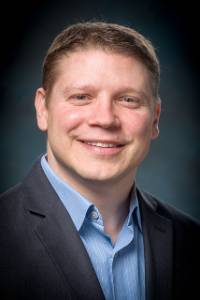
Professor
Spartan Complex 173B
(408) 924-3068
theodore.butryn@sjsu.edu
Professor Bio
Dr. Ted Butryn completed his Ph.D. in sport psychology and cultural studies at the
University of Tennessee. Since arriving at SJSU in 2000, he has taught a variety of
courses in the graduate (sport sociology, qualitative research methods), undergraduate
(psychology of coaching, sport sociology), and general education (diversity, stress,
& health, stress management) programs. Broadly speaking, his academic life involves
the intersection between sport sociology, sport psychology, and cultural studies,
and thus most of his work comes from an interdisciplinary (or transdisciplinary) perspective.
His main areas of research include the relationship between sport, technology, and
the body, the subcultures of mixed martial arts and pro wrestling, doping in sport,
and white racism and privilege in sport. He has published over 30 refereed journal
articles and book chapters, and given over 50 national and international conference
presentations. In 2003 he won the North American Society for the Sociology of Sport’s
Outstanding Article award, and he was the recipient of the 2010 SJSU College of Applied
Sciences and Arts Dean’s Scholar Award. In 2009, along with colleagues Jay Johnson
and Matthew Masucci, he was the PI of a 2-year World Anti-Doping Agency grant that
examined how elite, female triathletes come to know about various forms of doping
and the anti-doping movement. Finally, he was a 2012 Salzburg Fellow, and along with
Dr. Matthew Masucci, he co-directs the department’s Qualitative Research Lab. Outside
of his academic pursuits, Dr. Butryn was a member of the University of Tennessee track
and cross-country teams, and he continues to advocate for healthy, active lifestyles.
Education
Ph.D. University of Tennessee - Education (Emphasis in Sport Psychology & Cultural
Studies). M.A. San José State University - Societal Studies (Emphasis in Sport Psychology).
B.S. University of Tennessee - Sport Psychology.
Expertise, Research & Teaching Interests
My original area of focus was sport psychology, with an undergraduate thesis on the
evolution of an eco-sport psychology, and a master’s thesis that examined the thoughts
and cognitions of female distance runners in park and urban settings. During my doctoral
program at Tennessee, I became interested in the lived experiences of athletes and
exercisers, and thus turned my attention to various qualitative methodologies to answer
my eclectic research questions. My first ever qualitative study was on the perceptions
and experiences of college athletes with tattoos, and subsequently, I completed my
dissertation on the technological life histories of elite track and field athletes.
Currently, I continue research on cyborg sport, the psychology and sociology of mixed
martial arts and the subculture of pro wrestling, doping in sport, and whiteness in
sport.
Courses Taught
KIN 69 - Stress Management
KIN 164 - Sociocultural Perspectives (Sport Sociology)
KIN 168 – Psychology of Coaching
KIN 251 – Fundamentals of Qualitative Research
KIN 264 – Advanced Sport Sociology
Selected Publications
Butryn, T. M.,LaVoi, N. M., Kauer, K. J., Semerjian, T. Z., & Waldron, J. J. (2014). We walk the
line: An analysis of the problems and possibilities of working at the sport psychology-sport
sociology nexus.Sociology of Sport Journal, 31, 162-184.
Johnson, J. A., Butryn, T. M.,& Masucci, M. A. (2013). A focus group analysis of the US and Canadian female triathletes'
knowledge of doping.Sport in Society: Cultures, Commerce, Media, Politics, 16, 1-18.
Masucci, M. A., & Butryn, T. M.(2013). Writing about fighting: A critical content analysis of newspaper coverage
of the Ultimate Fighting Championship from 1993-2006.Journal of Sports Media, 1,19-44.
Jones, A., & Butryn, T. M.,Furst, D. M., & Semerjian, T. Z. (2013). A phenomenological examination of depression
in female Division-I athletes.Athletic Insight: The Online Journal of Sport Psychology, 5, 1-19.
Jeffery, K. J., & Butryn, T. M.(2012). Motivation of marathoners in a caused-based training program.Journal of Sport Behavior, 35, 300-319.
Clegg, J., & Butryn, T. M.(2012). A phenomenological examination of parkour and freerunning.Qualitative Research in Sport, Exercise and Health, 4, 1-21.
Butryn, T. M.(2012). Global smackdown: Vince McMahon, WWE, and neoliberalism. In. D. Andrews (Ed.)Sport and neoliberalism (pp. 280-293). New York: Temple Press.
Butryn, T. M.(2010). Interrogating whiteness in sport psychology. In T. Ryba, R. Shinke, & G. Tennebaum
(Eds.).The cultural turn in sport and exercise psychology(pp. 127-152). Morgantown, WV: Fitness Information Technology.
Butryn, T.M., & Masucci, M. A. (2009). Traversing the Matrix: Cyborg athletes, technology, and
the environment. Journal of Sport & Social Issues, 33, 285-307
Selected Presentations
Butryn, T. M.,LaVoi, N., & Schmidt, J. (2014).A media analysis of UFC women’s champ Ronda Rousey. Paper presented at the annual meeting of the North American Society for the Society
of Sport, Minneapolis, MN.
Butryn, T. M.& Semerjian, T. Z. (2012, November).The aging cyborg collective: A focus group examination of senior exercisers’ perceptions
and experiences of the body and technology.Paper presented at the meeting of the North American Society for the Sociology of
Sport, New Orleans, LA.
Butryn, T. M.(2011, November). Cyborg sport and the taken-for-granted biomedical imperative. Invited,
refereedPresident’s Panel Presentation. North American Society for the Society of Sport, Minneapolis, MN.
Masucci, M. A.,Butryn, T. M.,& Johnson, J. A. (2011, November).An examination of doping knowledge among world-class professional female triathletes. Paper presented at the annual meeting of the North American Society for the Society
of Sport, Minneapolis, MN.
Undergraduate/Graduate Student Research Supervision
Matt Crockett: A spatial ethnography of a Cross-Fit gym
Sophia Arenas: A qualitative examination of low-SES high school females athletes perceptions
of parental involvement
Matt Bejar: An analysis of coping with injury among low-SES DI athletes
Kate Mahoney: A qualitative examination of motivation among female, D-III athletes
Alyson Jones: A phenomenological examination of depression in female Division-I athletes
Jennifer Clegg: An existential phenomenological qualitative analysis of elite parkour
athletes
Seongkwang Cho: A mixed methods study on golf putting, imagery, and music
Karin Jeffrey: Motivation of marathoners in a caused-based training program.
Professional Affiliations
North American Society for the Sociology of Sport
Association for Applied Sport Psychology
Editorial Boards: Sociology of Sport Journal, Athletic Insight, Qualitative Research
in Sport, Exercise & Health
Seung Ho Chang, Ph.D.

Associate Professor
Spartan Complex 111
(408) 924-8154
Professor Bio
Dr. Seung Ho Chang received a B.S. degree in Physical Education and master’s degree
in Physical Education (emphasis in Motor Development and Control) from Seoul National
University, South Korea. He earned his Ph.D. in Kinesiology with a specialization
in Motor Development and Physical Education Teacher Education from The Ohio State
University, Columbus, Ohio. After completing his graduate work, Dr. Chang worked as
an Adjunct Professor in the Department of Kinesiology at Sam Houston State University,
Huntsville, TX.
Education
Ph.D. The Ohio State University - Kinesiology (Emphasis: Motor Development & Physical
Education Teacher Education).
M.A. Seoul National University - Physical Education (Emphasis: Motor Development &
Control).
B.S. Seoul National University - Physical Education.
Expertise, Research & Teaching Interests
Dr. Chang’s research agenda focuses on two complementary areas: Motor Development
and Physical Education Teacher Education: His primary research area is the motor competence
and physical activity of disadvantaged preschoolers with developmental delays. The
intent of this research is to understand the complex interactions of multiple subsystems
from the task, environment, and child in order to develop and implement high quality
motor skill interventions in schools, communities, and families. His second line of
research is to identify the types of teachers’ content knowledge (CK) and pedagogical
content knowledge (PCK) and how CK and PCK play a significant role in promoting students’
fundamental motor skills in physical education class.
Courses Taught
Lifespan Motor Development, Content in Elementary Physical Education, Teaching Physical
Education in Elementary School, Elementary Methods, Secondary Methods, Assessment
in Kinesiology, Team and Individual Sports Skill Analysis.
Selected Publications
Book Chapter
Payne, V.G., & Chang, S.H. (2018, in press). Lifespan Reflexes. The Sage encyclopedia of lifespan development,
Los Angeles: Sage Publishing.
Lee, J., Santiago, J. A., Chang, S.H., & Haegele, J. A. (2017). Academic community engagement research in kinesiology:
undergraduate students’ attitudes toward individuals with disabilities. In Evans,
Heather K. (Ed.). Community Engagement Finding across the Disciplines: Applying Course Content to Community
Needs (pp. 119-130). Rowman & Littlefield.
Goodway, J.D., Brian, A., Chang, S. H., & Park, S. (2014). Research Methods in the Motor Domain in Early Childhood. In O.
Saracho (Ed.) Handbook of Research Methods in Early ChildhoodEducation. Volume 2. Review of Research Methodologies (pp. 349-392). Charlotte, NC, Information Age Publishing.
Payne, V.G., & Chang, S.H. (2020). Gross motor development. In S. Hupp & J. Jewell (Ed.). The encyclopedia of child and adolescent development (pp. 1-10). San Francisco, CA: John Wiley & Sons.
Payne, V.G., & Chang, S.H. (2020). Fine motor development. In S. Hupp & J. Jewell (Ed.). The encyclopedia of child and adolescent development (pp. 1-10). San Francisco, CA: John Wiley & Sons.
Payne, V.G., & Chang, S.H. (2018). Reflexes. In M. Bornstein (Ed.). The SAGE encyclopedia of lifespan human development (pp. 1818-1821). Thousand Oaks, CA: SAGE Publications.
Journal Articles
Chang, S. H., & Kim, K. (2017). A review of factors limiting physical activity among young children
from low-income families. Journal of Exercise Rehabilitation. 13(4), 375-377.
Chang, S. H., & Lee, J. (2017). Teaching striking skills in elementary physical education using
Woodball. Journal of Physical Education, Recreation & Dance. 88(8), 21-27.
Lim, J., Chang, S. H., Lee, J., & Kim, K. (2017). Effects of smart phone texting on the visual perception
and dynamic walking stability. Journal of Exercise Rehabilitation. 13(1), 48-54.
Haegele, J. A., Lee, J., & Chang, S. H. (2017). Physical activity of parents of children with autism spectrum disorder. The International Journal of Disability, Development and Education. 64(4), 368-377.
Lee, J., Haegele, J. A., & Chang, S. H. (2017). Satisfaction of parents of children with autism spectrum disorders toward
physical education. Physical Educator.74(4).doi: http://dx.doi.org/10.18666/TPE-2017-V74-I4-7245
Chang, S. H., Lim, J., Lee, J., & Han, K. (2016). An investigation of factors on catching performance:
a constraints-led approach. International Journal of Human Movement Science. 10(2), 99-111.
Chang, S.H., Lee, Y.S. (2016). The study of physical activity and health-related physical fitness
content knowledge among undergraduate kinesiology students. Journal of Wellness. 11(4), 173-182.
Chang, S.H., Lee, J. (2020). The application of a logic model for planning a professional developemnt
workshop for physical education teachers.
International Journal of Kinesiology in Higher Educaiton. Doi.org/10.1080/24711616.2019.1710732.
Chang, S.H., Norris, M., & Lee, J. (2019). Teaching Jokgu for all in physical education. Strategies: A Journal for Physical and Sport Educators. 32(6), 9-17.
Chang, S.H., Kim, K.., Lee, J., & Lee, S. (2019). The effectiveness of physical activity interventions
for low-incone and ethnic minority children and youths: a meta-analysis. Journal of Physical Activity and Health. 16(9), 799-808.
Haegele, J. A., Lee, J., Chang, S.H., & Lee, Y.S. (2019). Physical Education Experiences among Elite Athletes with Visual
Impairments in South Korea. The Journal of Learner-Centered Curriculum and Instruction. 19(13), 359-282.
Tsuda, E., & Chang, S.H. (2019). Teaching one-handed sidearm striking for young children: using sequencing
movement tasks.Strategies: A Journal for Physical and Sport Educators. 32(1), 16-23.
Honda, J., Chang, S.H., & Kim, K. (2018). The effects of vision training, neck musculature strength, and
reaction time on concussions in an athletic population. Journal of Exercise Rehabilitation. 14(5), 706-712.
Lim J., Chang, S.H., & Cris Tomimbang, A. (2018). Effects of point of aim on the accuracy and eye movement
behavior in bowling: a pilot study. International Journal of Kinesiology & Sports Science. 6(3), 38-44.
Selected Presentations
Chang, S. H., Santiago, J. A., & Lee, J. (2016). A review of physical activity and health-related fitness content knowledge in physical educators. Presented at International Association for Physical
Education in Higher Education (AIESEP) International Conference, Laramie, WY.
Lee, J., Chang, S. H., Haegele, J. A. (2016). Satisfaction of Parents of Children with Autism toward Physical Education. Presented at the 2016 SHAPE America National Convention and Exposition in Minneapolis,
MN.
Lee, J., Haegele, J. A., & Chang, S. H. (2016). Physical Education Satisfaction of Physically-Active Parents of Children with Autism. Presented at the 2016 SHAPE America National Convention and Exposition in Minneapolis,
MN
Chang, S. H., Lee, J., & Santiago, J. A. (2015). Responsibility of PETE programs for Pre- Service Physical Educators’ Health-Related
Fitness Knowledge. Presented at the Society of Health and Physical Educators (SHAPE) Physical Education
Teacher Education (PETE) Conference, Atlanta, GA.
Goodway, J.D., Stodden, D., Brian, A., Chang, S.H., Ferkel, R., True, L., Famelia, R., Tsuda, E. (2015). Developmental Trajectories in Actual and Perceived Motor Competence, Physical Activity,
and Health-Related Fitness as Predictors of Weight Status. Presented at North American Society for Psychology of Sport and Physical Activity
(NASPSPA) National Conference, Portland, OR.
Chang, S. H., Norris, M., Park, S.H., & Lee, J. H. (2014). “Spike With Your Foot!” - Korean Jokgu. Presented at the American Association for Health, Physical Education, Recreation,
and Dance (AAHPERD), St. Louis, MO.
Chang, S. H., Ward, P., & Goodway, J. D. (2013). Physical Education Teachers' Content Knowledge for Teaching Fundamental Motor Skills. Presented at The 84th Annual Ohio Association for Health, Physical Education, Recreation,
and Dance (OAHPERD) Convention, Sandusky, OH.
Honda. J., & Chang, S. H. (2019). Developing an Educational Packet: Preventing Concussions for Parents and Youth. Presented at the 2019 Western Society for Kinesiology and Wellness (WSKW) Annual
Conference in Reno, NV.
Chang, S. H., Santiago, J.A., & Lee, J. (2019). Comparison of Pre-Service Physical Education Teachers' Content Knowledge. Presented at the 2019 SHAPE America National Convention and Exposition, Tampa, FL.
Lee,J., & Chang, S. H. (2019). A Movement Based Social Skills Program for Children with Autism. Presented at the 2019 SHAPE America National Convention and Exposition, Tampa, FL.
Chang, S. H., Santiago, J.A., & Lee, J. (2018). Pre-Service Classroom Teachers' Knowledge of Physical Activity and Health-Related
Fitness. Presented at The 2018 Physical Education Teacher Education (PETE) and Health Education
Teacher Education (HETE) Conference, Salt Lake City, UT.
Chang, S. H., & Lee, J. (2018). A Content Knowledge and Knowledge Packet for Teaching Fundamental Motor Skills. Presented at 2018 Western Society for Kinesiology and Wellness (WSKW) Annual Conference
in Reno, NV.
Lee,J., Haaegele, J.A., & Chang, S. H. (2018). Service-Learning: Changes in Attitudes Toward Individuals with Disabilities. Presented at The 2018 NOrth American Federation of Adapted Physical Activity Symposium,
Corvallis, OR.
Chang, S. H., Kim, K., Lee, J., & Lee, S. (2018). Interventions for Increasing Physical Activity in Low-Income, Ethnic Minority Children
and Youths: Meta-Analysis. Presented at The American College of Sports Medicine (ACSM) 65th Annual Meeting,
Minneapolis, MN.
Chang, S. H., & Lee, J. (2017). Pre-Service Classroom Teachers' Pedagogical Content Knowledge for Teaching Fundamental
Motor Skills. Presented at 2017 Western Society for Kinesiology and Wellness (WSKW) Annual Conference
in Reno, NV.
Chang, S. H., Lee, J., & Santiago, J.A. (2017). Kinesiology Students' Knowledge of Physical Activity and Health-Related Fitness. Presented at the 2017 SHAPE America National Convention and Exposition, Boston, MA.
Chang, S. H., Ward, P., & Goodway, J.D. (2017). The Influence of Pedagogical Content Knowledge on the Throwing Performance. Presented at the 2017 SHAPE America National Convention and Exposition, Boston, MA.
Lee, J., Vargo, C., & Chang, S. H. (2017). Evaluation of a Motor-Based Social Skills Program. Presented at the 2017 SHAPE America National Convention and Exposition, Boston, MA.
Chang, S. H., Lee, Y.S., & Lee, J. (2017). Investigating Pre-Service Physical Education Teachers' Physical Activity and Health-Related
Fitness Knowledge in Korea. Presented at the 29th International Sport Science Congress 2017, Chunan, South Korea.
Chang, S. H., Lee, J., & Lee, Y.S. (2017). Barriers to Physical Activity among Low-Income Children: A Systematic Review. Presented at The 2017 International Conference for the 6th East Asian Alliance of
Sport Pedagogy, Inchon, South Korea.
Chang, S. H., Ward, P., Goodway, J.D., Lee, J., & Tsuda, E. (2017). The Influence Teacher's Knowledge of Instructional Strategies on Throwing Performance
of Elementary Aged Children. Presented at North American Society for Psychology of Sport and Physical Activity
(NASPSPA) National Conference, San Diego, CA.
Undergraduate/Graduate Student Research Supervision
Dr. Chang has supervised undergraduate students’ research activities through SKIP
(Successful Kinesthetic Instruction for Preschoolers) motor skill intervention program.
In particular, Dr. Chang helped students understand how constraints (task/performance/environment)
influence motor performance, develop competency in assessing the motor performance
of young children, improve the ability to collect, analyze, and evaluate data, and
present the findings of their research via a poster presentation.
Professional Affiliations
Society of Health and Physical Educators (SHAPE), member
The North American Society for the Psychology of Sport and Physical Activity (NASPSPA),
member
The TEXAS Association for Health, Physical Education, Recreation and Dance (TAHPERD),
member (2014-2016)
The Ohio Association for Health, Physical Education, Recreation and Dance (OAHPERD),
member (2008-2014)
Jessica Chin, Ph.D.
Professor
Spartan Complex 173F
(408) 924-3039
jessica.chin@sjsu.edu
Professor Bio
Dr. Jessica Chin serves as the research and core specialist for SJSU’s Department
of Kinesiology and is engaged in both the undergraduate and graduate programs. Dr.
Chin is an active member of the Western Society for the Physical Education of College
Women (WSPECW), the International Sociology of Sport Association (ISSA), and the North
American Society for the Sociology of Sport (NASSS), regularly presenting her research
at their annual conferences. She is the Chair of the NASSS Elections Committee and
has also served on the NASSS Diversity and Conference Climate Committee (DCCC) and
the Environmental Impact Committee. Dr. Chin was elected as Chair of the Committee
to Enhance Equity and Diversity (CEED) in the College of Applied Sciences and Arts
(CASA) from 2010-2014 and was also an academic consultant to the Bay Area Physical
Education-Health Program (Bay PE-HP).
With a strong desire to include students in work that promotes diversity and social
justice, Dr. Chin has mentored and advised students in various capacities. As an example,
she leads and advises RePlay, a nonprofit, student-based group that seeks to benefit
and initiate positive change in local communities and educational institutions. Following
the core principles of promoting social justice and a green lifestyle, RePlay collects
used sporting goods and equipment, which they refurbish and distribute at events specially
organized for underserved community groups. RePlay has organized events and made significant
donations to foster children, homeless shelters, underfunded physical education programs,
and summer camps. Dr. Chin is passionate about physical activity and remains an advocate
for underserved and underrepresented populations through her teaching, research, and
community service.
Education
Ph.D. University of Maryland - Kinesiology (Physical Cultural Studies)
M.A. American University - International Communication
B.A. St. Mary's College of Maryland - Biology; Foreign Language (conc: French)
Expertise, Research & Teaching Interests
Dr. Chin’s research involves interdisciplinary, cross-cultural analyses, focusing
particularly on the ways social, cultural and historical contexts shape and inform
the construction of identity through sport and physical activity. She takes a special
interest in the role of the active female body and its use in the negotiation of power. One
strand of her research focuses on elements of postcommunist sport: emergent female
subjectivities related to physical culture, changing patterns of lifestyle and leisure
consumption, and socio-cultural tensions manifested in sport and physical activity
in Romania. Other research lines include: hazing in college athletics and its impact
on health and wellness of (female) athletes; intersections of culture, identity and
representation of Asian (/American) athletes; and the politics and physical and social
experiences of the San Jose Bike Party.
Undergraduate Courses Taught
KIN 70 - Introduction to Kinesiology
KIN 185/H - Senior Seminar/Honors Senior Seminar
Graduate Courses Taught
KIN 251 - Fundamentals of Qualitative Research
KIN 263 - International Sport and Physical Education
KIN 264 - Sociology of Sport
Selected Publications
Johnson, j. & Chin, J. (2016). Seeking new glory (d)haze: A qualitative examination of adventure-based, team
orientation rituals as an alternative to traditional sport hazing for athletes and
coaches, International Journal of Sports Science and Coaching, 11(3), 327-341. (published online 28 April 2016). DOI: 1177/1747954116643648
Johnson, j. & Chin, J. (2016). Hazing rites/rights: Using outdoor- and adventure-based orientation to effect
positive change for first-year athletes. Journal of Adventure Education & Outdoor Learning, 16(1), 16-30. (published online 15 Aug 2015). DOI:1080/14729679.2015.1050681
Chin, J. & Andrews, D. L. (2016). Mixed Martial Arts, Caged Orientalism, and Female Asian American
Bodies. In, Thangaraj, S., Arnaldo, Jr., C., & Chin, C. (Eds.). Asian American Sporting Cultures (pp. 152-179). NY: New York University Press.
Chin, J., Castro, L., & Han, KM. (2015). Assessment of Coaches’ First Aid Knowledge and Decision
Making in Youth Soccer. International Journal of Human Movement Science 9(2), 25-38.
Massiera, B., Petracovschi, S., & Chin, J. (2013). Ideological challenges to developing leisure sport in Romania: A cultural
and historical analysis of the impact of elite sport on popular sport practice. Loisir et Société/Society & Leisure, 1(1), 1-16.
Chin, J. & johnson, j. (2011). Making the team: Threats to health and wellness in sport hazing
cultures. The International Journal of Health, Wellness & Society, 1(2), 29-38.
Chin, J. (2010). The new “superwoman”: Intersections of fitness, physical culture, and the
female body in Romania. In Kennedy, E. and Markula, P. (Eds.), Women and exercise: The body, health, and consumerism (pp. 229-246). NY: Routledge.
Selected Presentations
Chin, J. W., johnson, j. & Masucci, M. (2018 June). Through the optical lens: Musings on developing
a hybrid moving methodology. Qualitative Research in Sport and Exercise (QRSE), Vancouver,
Canada.
Chin, J. (2017 November). Chinese American sport body matters: Performance and politics of
9-man. North American Society for the Sociology of Sport (NASSS), Windsor, Ontario,
Canada.
Chin, J. (2017 May/June). Chinese heritage and identity: Connecting through sport and the
9-man community. International Sociology of Sport Association (ISSA), Taoyuan, Taiwan.
Hardell, E. & Chin, J. (2016 November). Youth sport development pathways of Division I collegiate female
soccer players. North American Society for the Sociology of Sport (NASSS), Tampa Bay,
FL.
Chin, J. (2015 November). Fighting the Asian Mystique: Popular Representations of female Asian
American bodies in MMA. North American Society for the Sociology of Sport (NASSS),
Santa Fe, NM.
johnson, j. & Chin, J. (2014 June). On the fringe: Strategizing play to defray conflict within the matrix
of team membership, community, and sport hazing. Asian Conference on the Social Sciences,
Osaka, Japan.
Chin, J. (2014 May). Hazing and sport team initiation: Experiences of Division I collegiate
female athletes. Sport & Society in America, Greenbay, WI.
Chin, J. (2013 November). Sport team initiations: Experiences of Division I collegiate female
athletes. Western Society for Physical Education of College Women (WSPECW), Pacific
Grove, CA.
Chin, J. (2012 November). Methodological considerations for research on deviant behavior in
NCAA sports. North American Society for the Sociology of Sport (NASSS), New Orleans,
LA.
Chin, J. & johnson, j. (2012 June). Complicating the impact of Title IX: A media analysis of
hazing in female sports. North American Society for Sport History (NASSH), Berkeley,
CA.
Graduate Student Research Supervision
Thesis Chair:
Hardell, E. (Fall 2017). Early sport participation and developmental decision making
of female National Collegiate Athletic Association Division I soccer athletes.
Lupinetti, V. (Spring 2015). Self-presentation and social media: A qualitative examination
of the use of Instagram by amateur NPC female figure competitors
Alexander, L. (Spring 2014). NCAA Division I coaches and athletic trainers: An examination
of professional relationships and knowledge of the athletic training profession.
Dao, M. (Summer 2013). An examination of American Sport for Development and Peace
interns’ program experiences.
Castro, L. (Spring 2010). Assessment of First Aid knowledge and decision making of
coaches of youth soccer.
Plan B Project Advisor:
Atkinson, L. (Spring 2018). African American men's understanding of obesity and cardiovascular
disease.
Calvet, S. (Spring 2018). A mental health handbook for certified athletic trainers
working with collegiate athletics.
Ho, K. (Spring 2018). Psychosocial responses upon return to play in NAIA collegiate
athletes.
Jones, L. (Spring 2017). The experience of injury within exotic dance and pole competition.
Schlimmer, E. (Fall 2016). Support for emotional and psychological conditions in collegiate
athletics.
Lane, K. (Fall 2014). Body image and training practices of young male bodybuilders
Lovelace, B. (Fall 2014). The challenges and obstacles of Black female NCAA athletic
directors
Rosen, J. (Spring 2014). Assessing and identifying talent of Division I swimmers during
the recruiting process.
Gittens, J. (Spring 2014). Experiences of female athletic trainers working in NCAA
Division I athletics.
Hunter, D. (Spring 2013). Impact of a coaches’ gender on female basketball players’
attitude toward the coach.
Ringelberg, J. (Fall 2011). Developing a physical activity- and nutrition education-based
afterschool program for Latino youth.
Moreno, M. (Spring 2011). Bridging the gap between allied health professionals and
fitness specialists for the treatment of chronic low back pain.
Osmer, S. (Spring 2011). A comparison of injury rates between freshman and non-freshman
athletes
Beranova, L. (Spring 2010). Self-confidence and Incidence of Injury in Youth Female
Soccer Players.
Herrera, J. (Fall 2009). Development plan of a parent-child clinic: Adults showing
and teaching sportsmanship to children.
Professional Affiliations
North American Society for the Sociology of Sport (NASSS)
International Sociology of Sport Association (ISSA)
Western Society for the Physical Education of College Women (WSPECW)
Craig Cisar, Ph.D.
Professor
Spartan Complex 117
(408) 924-3018
Professor Bio
Dr. Craig J. Cisar received a B.S. degree from the University of South Dakota in business
administration, a M.P.E. from the University of Nebraska-Lincoln in exercise science,
and a Ph.D. from the University of Nebraska-Lincoln in exercise physiology. Dr. Cisar
is a Professor of Exercise Physiology in the Department of Kinesiology at San Jose
State University, Fellow of the American College of Sports Medicine (ACSM), ACSM certified
Exercise Test Technologist, National Strength and Conditioning Association (NSCA)
Certified Strength and Conditioning Specialist, and NSCA-Certified Personal Trainer.
Dr. Cisar primarily teaches in the area of exercise physiology and other related exercise
science courses. Dr. Cisar has numerous publications and presentations on topics related
to various aspects of physical fitness, conditioning and training, limitations and
determinants of sports performance, body composition, and physical activity and aging.
Education
Ph.D. 1986, University of Nebraska-Lincoln Lincoln, Nebraska Exercise Physiology
M.P.E. 1984, University of Nebraska-Lincoln Lincoln, Nebraska Exercise Science
1979-1980, University of Illinois Champaign, Illinois Undergraduate Study in Physical
Education Theory and Science B.S.
1972, University of South Dakota Vermillion, South Dakota Business Administration,
Emphasis in Accounting
Expertise, Research & Teaching Interests
The expertise of Dr. Cisar is in exercise physiology, strength and conditioning, environmental
exercise physiology, and physical activity across the lifespan. Dr. Cisar has numerous
publications and presentations on topics related to various aspects of physical fitness,
conditioning and training, limitations and determinants of sports performance, body
composition, and physical activity and aging. Dr. Cisar primarily teaches in the area
of exercise physiology and other related exercise science courses.
Courses Taught
Undergraduate
Taught undergraduate Exercise Physiology, Advanced Fitness Assessment and Exercise
Prescription, Senior Seminar, Principles of Conditioning and Training, Concepts and
Performance of Muscular Strength and Endurance, Concepts and Performance of Cardiorespiratory
Fitness and Flexibility, Instrumentation in Exercise Physiology and Biomechanics,
Electrocardiogram Interpretations and Graded Exercise Testing, Fitness Program Management,
Measurement and Evaluation in Kinesiology, Physical Fitness and Nutrition, Individualized
Physical Fitness, Conditioning through Cross Training, Beginning Cycling, Beginning
Weight Training, Intermediate Weight Training, Beginning Jogging, and Fitness Walking.
Graduate
Taught graduate Environmental Exercise Physiology, Advanced Exercise Physiology, Research
Methods, Analysis of Research and Issues in Human Performance, and Master of Arts
Seminar in Human Performance.
Selected Plublications
Bellevue, O., Cisar, R., Cisar, C., Bowen, J., & Wilkinson, S. (2009). Evaluation and comparison of 300-yd and 500-yd
shallow water run tests as predictors of aerobic power. International Journal
of Aquatic Research and Education, 3, 378-397.
Clemens, C.A., & Cisar, C.J. (2006). The effect of footwear on the reliability of the 500- yard shallow water
run as a predictor of maximal aerobic capacity (VO2max). Aquatic Fitness Research Journal, 3(1), 35-39.
Read, M.M., & Cisar, C.J. (2001). Influence of rest interval length on depth jump performance. Journal of
Strength and Conditioning Research, 15(3), 279-283.
Dunagan, N., Greenleaf, J.E., & Cisar, C.J. (1998). Thermoregulatory effects of caffeine
ingestion during submaximal exercise in men. Aviation, Space, andEnvironmental Medicine,
69(12), 1178-1181.
Cisar, C.J., & Corbelli, J. (1989). The volleyball spike: A kinesiological and physiological
analysis with recommendations for skill development and conditioning. National Strength
and Conditioning Association Journal,11(1), 4-8, 76-81.
Cisar, C.J., Housh, T.J., Johnson, G.O., Thorland, W.G., & Hughes, R.A. (1989). Validity of
anthropometric equations for determination of changes in body composition in adult
males during training. Journal of Sports Medicine andPhysical Fitness, 29, 141-148.
Cisar, C.J., Thorland, W.G., Johnson, G.O., & Housh, T.J. (1986). The effect of endurance training
on metabolic responses and the prediction of distance running performance. Journal
of Sports Medicine and Physical Fitness, 26, 234-240.
Selected Presentations
Green, K., Cisar, C.J., Holder, C.R., Layport, J.T., & Cobian, B.R. (July, 2011). Comparison of Two
Training Programs for Increasing Power. Paper presented at the annual meeting of
the National Strength and Conditioning Association, Las Vegas, NV.
Rosenberger, M., Cisar, C., Plato, P., & Duke, M. (June, 2005). Comparison of perceived and measured fitness
in adults. Paper at the annual meeting of the American College of Sports Medicine,
Nashville, TN.
Cisar, C.J., Phillips, C.M., & Russum, W.P. (1990, June). Determinants of cyclingperformance.
Paper presented at the annual meeting of the National Strength and Conditioning Association,
San Diego, CA.
Cisar, C.J., Johnson, G.O., Fry, A.C., & Ryan, A.J. (1987, June). Assessment of preseason muscular
strength as a basis for specific conditioning. Paper presented at the annual meeting
of the National Strength and Conditioning Association, Las Vegas, NV.
Cisar, C., Staley, C., Johnson, G., Fry, A., & Ryan, A. (1987, May). Physiological determinants
of distance running performance across adolescent age groups. Paper presented at
the annual meeting of the American College of Sports Medicine, Las Vegas, NV.
Cisar, C., Thorland, W., Johnson, G., Housh, T., & Hughes, R. (1986, May). Validity ofanthropometric
equations for determination of changes in body composition in adult males during training.
Paper presented at the annual meeting of the American College of Sports Medicine,
Indianapolis, IN.
Cisar, C., Thorland, W., Johnson, G., & Housh, T. (1983, May). Aerobic and anaerobicthresholds
and maximal oxygen consumption rates as predictors of distance runningperformance.
Paper presented at the annual meeting of the American College of Sports Medicine,
Montreal, Canada.
Undergraduate/Graduate Student Research Supervision
Segrove, G. (2014). The movement library: Combating muscle imbalance through exercise
categorization.
Brown, W. (2013). A comparison of three anaerobic capacity tests.
Truong, D. (2012). A comprehensive review on ACL injury prevention programming for
females age 7-12 years old.
Marah, M. (2012). iKettlebell.
Wilson, C. (2011). YMCA weight loss challenge instructor’s manual: Physical activity.
Alexander, S. (2010). Twelve-week linear periodization golf-conditioning program.
Barros, A. (2010). Plyometric training: A review of literature and informative brochure.
Benton, D. (2010). Improving jump height, sprint speed, and change of direction through
strength and plyometric training for soccer teams with minimal equipment.
Corrado, L. (2010). Coaching more than the game: An injury prevention guide for
the part-time your youth soccer coach.
Lo, S. (2010). Complete training progression for high school football.
Wilson, K. (2010). Hypothyroidism and exercise.
Barsanti, D. (2009). Creation of a website for online personal training.
Vasquez, A. (2009). Summer strength training program for SJSU men’s cross country.
Green, K. (2008). A comparison of two training programs for increasing power measured
by the vertical jump.
Vu, A. (2008). The development of a professional personal training website.
Balangitao, M. (2007). Soccer fitness for the female weekend warrior.
Oettinger, M. (2007). Physical fitness assessment and program design for middle
school students.
Phanfl, A. (2007). Triathlon training for the sedentary elderly.
Sollis, P. (2007). Assessing osteoporosis learning needs and preferences of exercise physiologists.
Clemens, C. (2006). Effect of footwear on the reliability of the shallow water run
test.
Eklund, C.D. (2006). Strength and conditioning model for Las Positas Community College
athletics.
Layport, J. (2006). An off-season periodization strength and conditioning program
for DI volleyball.
Massian, F. (2006). Comparison of perceived physical activity to actual physical
activity and the relationship to BMI.
Mayor, C. (2006). Prenatal fitness program.
Rial, N. (2006). A comparison of body weight, arm segment length, and strength.
Robbins, L.P. (2006). Muscles in motion: A companion test for KIN 31.
Schroeder, S. (2006). The relationship between acute mountain sickness and rating
of perceived exertion on Denali.
Johnson, G. (2005). Use and perceived efficacy of nutritional supplements among
track and field athletes.
Ramsey, M. (2004). Sport specific stretching manual.
Rosenberger, M. (2004). Perception of fitness and fitness testing in healthy adults.
Thompson, N. (2004). Exercise and pregnancy.
Meccia, S. (2003). Annual periodized strength and speed training programs for an amateur
wide receiver.
Saxe, S. (2003). Functional assessment manual.
Attaway, T. (2002). Children and sports injuries.
Dickinson, L. (2002). The effect of motor unit discharge rate on central activation
in older adults.
Hiroaki, N. (2001). Physiological attributes underlying successful performance in
judo.
Camacho, M. (2000). Prevention of type 2 diabetes through proper nutrition and exercise.
Gilligan, J.M. (1999). The validity of 1-RM prediction charts for predicting submaximal workloads.
Lango, J. J. (1999). The relationship of performance tests to playing time of college football
players.
Read, M.M. (1997). The effects of varied rest interval lengths on depth jump performance.
Asplund, G. (1995). A submaximal test for arm ergometry to determine peak oxygen uptake
rate in upper body exercise.
Lieberman, H.B. (1994). The perception of ventilatory threshold and its accuracy
for indicating anaerobic threshold.
Embree, J.R. (1993). Anthropometric, flexibility, and strength characteristics in
male competitive rock climbers.
Hansen, M. (1993). The energy cost of females walking and jogging while pushing
the baby jogger.
Dunagan, N.A. (1992). Thermoregulatory effects of caffeine ingestion during rest
and exercise in men.
Meyer, D.F. (1992). Validation of the American College of Sports Medicine's published metabolic
equation for walking using females 55 years of age and older.
Quevedo, H.F. (1992). The effects of rest interval length on acute physiological responses
to heavy-resistance exercise.
Moberg, A.D. (1991). Physiological indicators in the prediction of firefighting
ability.
Setterlund, S.S. (1991). Fitness changes in division 1-A offensive receivers during
a 16-week college football season.
Sottovia, C.B. (1990). Study to estimate the content validity and reliability of
a quality of life questionnaire designed for hypertensive patients.
Phillips, C.M. (1989). Triathletes: A physiological characterization. The contribution of
selected physiological variables in the discrimination of triathlon performance.
Russum, W. (1989). Physiological determinants of rock climbing ability.
Professional Affiliations
American College of Sports Medicine
National Strength and Conditioning Association
Southwest Chapter American College of Sports Medicine
Michael Dao, Ph.D.
Associate Professor
Spartan Complex 113
(408)924-2904
Professor Bio
Dr. Dao completed his Ph.D. in the Graduate Department of Exercise Sciences (now Kinesiology)
at the University of Toronto, specifically in the physical cultural studies stream.
Prior to his doctoral studies at the University of Toronto, his educational background
was founded and forged at San José State University where he completed his undergraduate
degree in the Department of Kinesiology (B.S., concentration – sport management),
as well as his graduate degree in Kinesiology (M.S., concentration – sport studies).
Generally, Dr. Dao’s research is interdisciplinary and involves critical pedagogy,
historical sociology, critical social theory and development studies. Dr. Dao’s research
interests are rooted in sport as tool for development internationally, and sport studies
in Vietnam and the Vietnamese diaspora. In a teaching capacity, Dr. Dao teaches primarily
in the sport management and culture stream with links to graduate course, undergraduate
core courses and general elective courses. Professionally, Dr. Dao has worked in various
spaces related to sport in university athletics ranging from development, marketing,
ticket operations and compliance. His most recent role was working in the Department
of Intercollegiate Athletics at San José State University. Through this research and
professional development Dr. Dao is an advocate for equitable and diverse practices
in sport and physical activity. He aims to build bridges between the Department of
Kinesiology and communities around San José to address social barriers that may prohibit
marginalized from participating in sporting spaces. Moreover, as a native of San José,
CA who was born to Vietnamese refugees, Dr. Dao is passionate about immigrant and
refugee rights in America. He hopes his research and teaching will engage all students
and communities to work towards practices of social justice.
Education
Ph.D., University of Toronto – Exercise Sciences (Field of Study: Physical Cultural
Studies)
M.A, San José State University – Kinesiology (Field of Study: Sport Studies)
B.S., San José State University – Kinesiology (Field of Study: Sport Management)
My diverse research interests are united by the use of historical sociology and critical
theoretical approaches to examine dominant and subversive constructions of sport and
physical culture, with a particular emphasis on the role of development and social
change in international sport. Broadly, my research interests center on how sport
and physical activity are utilized to address humanitarian issues domestically and
internationally. Engaging with the field of Sport for Development (SfD), my curiosity
stems from how sport when transformed into a tool for development is processed, practiced
and participated by numerous stakeholders (e.g., funders, SfD projects, & local community
members). This is particularly important as both “sport” and “development” discourses
are not similar across different nations, cultures, and peoples. My research has primarily
been centered in the Southeast Asian country of Vietnam where I worked alongside an
SfD project, Football for All in Vietnam (FFAV). At SJSU, I am working to continue
my international partnership and future projects in Vietnam, specifically a historical
project of physical culture of the country.
I have taught courses in sport and recreation perspectives, physical culture and social
inequality, and international development through sport. In my courses I aim to engage
students academic rigor, reflexivity and research skills. It is my intent as an educator
to provide scholarly and analytical resources for students to use in their lives and
apply in their communities. I believe students should be seen as both the means and
the ends to their education and need to drastically embrace their roles as the change
agents in their lives.
KIN 111: Sport and Movement in a Global Context
KIN 160: History of Sport and Physical Education
KIN 164: Sociocultural Perspectives of Sport
KIN 263: International Sport and Physical Education
Selected Publications
Journal Articles:
Dao, M. & Chin, J. (2021). The Americanization of Sport for Development and Peace:
Examining American SDP intern experiences. Journal of Sport for Development, 9(1),
32-47. Retrieved from
https://jsfd.org/
Dao, M. (2020). Conceptualizing participatory evaluation in sport for development:
A researcher’s perspective on processes and tensions from Vietnam. Journal of Sport
for Development, 8(14), 70-85. Retrieved from
https://jsfd.org/
Dao, M. (2020). “Nước Việtnam là Quê Hương Của Tôi:” Historical, political and sociocultural
implications of the Vietnamese-American researcher in Sport for Development.” Qualitative
Research in Sport, Exercise, and Health, 12(4), 554-568.
https://doi.org/10.1080/2159676X.2020.1753804
Hill, T. & Dao, M. (2020). “Personal pasts become academic presents: Engaging reflexivity
and considering dual insider/outsider roles in physical cultural fieldwork.” Qualitative
Research in Sport, Exercise, and Health, 13(3), 521-535.
https://doi.org/10.1080/2159676X.2020.1731576
Dao, M. (2018). Book review: Localizing global sport for development and peace. Sociology
of Sport Journal, 36(1), 260-261. http://doi.org doi.org/10.1123/ssj.2018-0034
Book Chapters:
Dao, M. & Darnell, S.C. (2022). Exploring the Social and Political Tensions of Entrepreneurship
in Vietnamese Sport for Development. In P. Svensson, L. Hayhurst, P. Safai, & M. McSweeney
(Eds). Social innovation, entrepreneurship, and sport for development and peace. Routledge.
Darnell, S.C. and Dao, M. (2018) “Considering Sport for Development and Peace through
the Capabilities Approach.” in Chawansky, M., Hayhurst, L.,MacDonald, M. and van Ingen,
C. Editors) Innovations in Sport for Development and Peace Research. Routledge. (Reprinted
from Third World Thematics, 2/1)
Spring 2022:
Christensen, K. (Spring 2022). A Qualitative Study of Socioeconomic Status and Early
Sport Specialization: Male Collegiate Soccer Players Experiences
Lang, K. (Spring 2022). NCAA Division 1 Baseball Student-Athletes’ Experiences with
Injury Rehabilitation During the COVID-19 Pandemic
Fall 2021:
Evanger, J. (Fall 2021). Qualitative Analysis of Young Adult’s Thoughts on Access
to Lacrosse in the Bay Area
Meyer, M. (Fall 2021). Effects of Quarantine due to COVID-19 on College Team Sport:
Basketball
North American Society for the Sociology of Sport (NASSS)
International Sociology of Sport Association (ISSA)
Beyond Sport Network
David Daum, Ph.D.
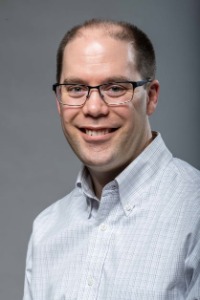
Associate Professor
Spartan Complex 113
(408) 924-3019
david.daum@sjsu.edu
Professor Bio
David N. Daum, Ph.D., is an Associate Professor of Kinesiology at San Jose State University.
His area of expertise includes physical education teacher education, curriculum design,
assessment, and technology. He provides service to the physical education community
through active engagement with the California Association of Health, Physical Education,
Recreation, and Dance (CAHPERD) and the Society of Health and Physical Educators (SHAPE
America). Additionally, he has a long history of presentations and publications that
target both K-12 practitioners and researchers. His scholarship focuses on the preparation
of future teachers, educational policy, technology in physical education and K-12
blended and online physical education. Dr. Daum is an advocate for quality physical
education at all levels and enjoys preparing and mentoring the next generation of
educators.
Education
Ph.D. University of Illinois – Kinesiology (Concentration in pedagogy)
M.A. California State University Chico – Kinesiology (Concentration in pedagogy)
B.A. California State University Chico – Kinesiology (Concentration in pedagogy)
Expertise, Research & Teaching Interests
Dr. Daum’s expertise is in Physical education teacher education (PETE) and works with
undergraduate and credential students in their journey to become teachers. Primary
teaching areas of interest include integration of technology in teaching, assessment
of learning, using curricular models, and advancing the teaching profession. Dr. Daum
is very active in scholarship focused on researching the application of educational
policy and laws in K-12 schools, advocacy, and technology in education.
Courses Taught
KIN 172 – Elementary school programs K-6
KIN 173 – Introduction to teaching physical education
KIN 177 – Movement experiences in physical education
KIN 178 – Management strategies for physical education teachers
KIN 179 – Design and assessment of movement experiences
KNED 184yz – Student teaching seminar in physical education
KNED 339 – Instructional materials and procedures in physical education
Selected Publications
Daum, D.N, Goad, T., & Greenberg, J (2025). Technology in Physical Education. In J. Greenberg
& J. LoBianco (2nd Ed) Organization and Administration of Physical Education, Killian,
C. K., Goad, T., Daum D.N., Gentry, C. (2025). Exploring K-12 physical education teachers’
acceptance and use of online learning: A theoretical approach. American Journal of
Distance Education,1-19.
https://doi.org/10.1080/08923647.2025.2482290
Bittner, M.,
Daum, D.N., Moore, T., Patterson, D., Suppe, P., Wilson-Graham, D. (2024). Physical fitness
testing concerns: Bullying and inclusion. The Physical Educator, 81, 404-428, https://doi.org/10.18666/TPE-2024-V81-I4-11867
Banville, D., Marttinen, R., Daum, D. N., & Johnston, K. (2024). Struggles and successes
of pre-service teachers when implementing a student-centered curriculum in an After-School
Program. Action in Teacher Education, 46, 1, 3-20,
https://doi.org/10.1080/01626620.2023.2260344
Johnson, J., Daum, D.N., & Norris, J. (2023). Physical educators, distance learning, and the pandemic: Crisis
learning. CAHPERD Journal. 9, 2, 16-24.
Reynolds, E., Daum, D.N., Frimming, R., & Ehlman, K. (2016). Pickleball transcends generations in southwest
Indiana: A University and area agency on aging partnership changing the face of aging, Journal of Intergenerational Relationships, 14, 242-251.
Rhoades, J.L., Woods, A.M., Daum, D.N., Ellison, D., & Trendowski, T. (2016) JTPE: A 30-year retrospective of published research, Journal of Teaching in Physical Education, 35, 4-15.
Daum, D.N. & Woods, A.M., (2015). Physical education teacher educator’s attitudes towards and
understanding of K-12 online physical education. Journal of Teaching in Physical Education, 34, 716-724.
Woods, A.M., Graber, K.C., Daum, D.N. & Gentry, C. (2015). Young school children’s recess physical activity: Movement patterns
and preferences, Journal of Teaching in Physical Education, 34, 496-516.
Daum, D.N, & Buschner, C. (2014). Research on teaching blended and online physical education.
In R. Ferdig, & K. Kennedy (Ed.) Handbook of research on K-12 online and blended learning, Pittsburg, PA, ETC Press
Woods, A.M., Graber, K.C. & Daum, D.N. (2012). Children’s recess physical activity: Movement patterns and preferences, Journal of Teaching in Physical Education, 31, 146-162.
Daum, D.N., & Buschner, C. (2012). The status of high school online physical education in the
United States, Journal of Teaching in Physical Education, 31, 86-100.
Selected Presentations
Smith, N.J., Daum, D.N., Bittner, M., and Gentry, C. (2025). Physical education and physical activity opportunity
in California public schools. An oral presentation at the annual meeting of the California
Association for Health, Physical Education, Recreation, and Dance in Pasadena, CA
January 23-25, 2025.
Daum, D.N., Dulai, M., Arias, K., & Huerta, M., (2025). No Excuses, Pannel moderator, part
of the “EmpowerED movie screening series, San Jose State University, March 23rd, 2025.
Daum, D.N. & Gentry, C. (2025). Undergraduate and Graduate Student Poster Session (Moderators),
Moderated at the 2025 state conference of the California Alliance for Health, Physical
Education, and Dance, Pasadena, CA April 30 - March 3, 2025.
Goad, T., Killian, C.K., Daum, D.N. (2023). Training online physical educators. Presented at the SHAPE America National
Convention, Seattle, WA, March 28-April 1, 2023.
Goad, T., Daum D.N., Killian, C. K., & Gentry, C. (2022). Exploring physical education teachers’ acceptance
and use of online technology. Presented at the SHAPE America National Convention,
New Orleans, LA, April 26-30, 2022
Daum, D.N., Brummel, B., & Driesen, R. (2022). “Lessons Learned” Designing online courses for
equitable learning. Presented at the SHAPE America National Convention, New Orleans,
LA, April 26-30, 2022
Butler, S., Bohigian, D., Daum, D.N., Ranney, S., Pascal-Gonzales, M., & Wiederholdt, B. (2016). Utley’s slide: Fair or
foul play? Presented at the 2016 meeting of Western Society for Kinesiology & Wellness,
Reno, NV.
Daum, D.N. (2016). Differentiated instruction and data driven instruction. Presented at the
2016 in-service training for Rhythm and Moves, Burlingame, CA.
Daum, D.N., & Buschner, C. (2015). The horse left the barn: Secondary online physical education.
Presented at the 2015 meeting of the Western Society for Kinesiology and Wellness,
Reno, NV.
Daum, D.N., Mosier, B., Buschner, C., Smith, B., Cain, D., Driesen, R., Carone, K., & Williams,
L. (2015). Best practices for blended and online physical education. Presented at
the 2015 annual meeting of the Society for Health and Physical Educators, Seattle
WA.
Daum, D.N., Buschner, C, Smith, B., & Mosier, B. (2014). Challenges in PE teacher education
(PETE): Secondary online physical education. Presented at the annual meeting of the
American Alliance for Health, Physical Education, Recreation and Dance, St. Louis,
MO.
Daum, D. N., Buschner, C., & Woods, A. M. (2014). K-12 online physical education policy and practices
in the United States. Presented at the World Congress meeting of the International
Association for Physical Education in Higher Education, Auckland, New Zealand.
Undergraduate/Graduate Student Research Supervision
Professional Affiliations
California Association of Health, Physical Education, Recreation, and Dance (CAHPERD)
Society of Health and Physical Educators (SHAPE America)
Felipe Gorini Pereira, Ph.D.
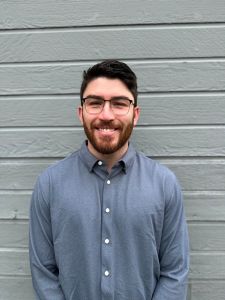
Assistant Professor
Spartan Complex 173G
(408) 924-3014
felipe.gorini@sjsu.edu
Professor Bio
Dr. Gorini Pereira earned his Ph.D. in Human Performance at Indiana University, as
well as his M.S. in Kinesiology and B.S. in Health Sciences from California Baptist
University. Dr. Gorini Pereira is currently an Assistant Professor of Applied Exercise
Physiology in the Department of Kinesiology at San José State University. His research
interests are aimed at utilizing integrative physiology to better understand how extreme
environments, such as prolonged cold and heat exposure, impact the safety and performance
of healthy and at-risk populations. He teaches various undergraduate and graduate
courses in the field of exercise and environmental physiology. Dr. Gorini Pereira
is an massive sports fan, always cheering on his favorite teams, including Liverpool
F.C. and the Indiana Hoosiers.
Education
Indiana University, Bloomington, IN
PhD in Human Performance, Exercise Physiology, Minor in Medical Physiology
July 2025
Advisor: Blair D. Johnson, Ph.D.
California Baptist University, Riverside, CA
Masters of Kinesiology, Exercise Science
May 2020
Advisor: Trevor Gillum, Ph.D.
California Baptist University, Riverside, CA
Bachelor of Science in Health Science
May 2018
Advisor: Trevor Gillum, Ph.D.
Expertise, Research & Teaching Interests
Dr. Gorini Pereira's research interests are aimed at utilizing integrative physiology
to better understand how extreme environments, such as prolonged cold and heat exposure,
impact the safety and performance of healthy and at-risk populations. Specifically,
he is interested in understanding how popular health protocols, such as cold water
immersion, impact human physiology.
Courses Taught
KIN 157 – Physiological Assessment
KIN 255 – Advanced Exercise Physiology
Selected Publications
Gorini Pereira, F., Ryan, C.T., Miller, S., Watters, A., Mickleborough, T.D., Schlader,
Z.J., Bell, C., Johnson, B.D. (2025). The Thermogenic Effect of Mirabegron Ingestion
During Cool Conditions. Manuscript Accepted to Frontiers in Physiology.
Gorini Pereira, F., McBryde, M., Reynolds, M., Sackett, J., Chapman, C., Gideon, E.,
Schlader, Z.J., Johnson, B.D. (2024). Activation of cardiac parasympathetic and sympathetic
activity occur at different skin temperatures during face cooling. American Journal
of Physiology-Regulatory, Integrative and Comparative Physiology. APS Select Article
of May 2024
DOI:10.1152/ajpregu.00196.2023
Gorini Pereira, F., Greenfield, A., Kuennen, M., Gillum, T. (2024). Exercise induced
plasma volume expansion lowers cardiovascular strain during 15-km cycling time-trial
in acute normobaric hypoxia. PLOS One. DOI: 10.1371/journal.pone.0297553
Selected Presentations
Gorini Pereira, F., Ryan, C.T.,Watters, A., Schlader, Z.J., Bell, C., Johnson, B.D.
Pharmacological Activation of Brown Adipose Tissue Enhances Cold Resiliency during
Progressive Cold-Water Immersion. 2025 APS Summit. Baltimore, MD. Poster Presentation.
Recipient of Environmental & Exercise Section CANTROL Environmental Systems Predoctoral
Research Award. DOI: 10.1152/physiol.2025.40.S1.0987
Gorini Pereira, F., Ryan, C.T.,Watters, A., Schlader, Z.J., Bell, C., Johnson, B.D.
Beta-3 Adrenergic Receptor Activation Increases Resting Energy Expenditure and Brown
Adipose Tissue Activity in a Cool Environment. 2024 APS Summit. Long Beach, CA. Poster
Presentation. Recipient of Henry Pickering Bowditch Abstract of Distinction Award.
DOI: 10.1152/physiol.2024.39.S1.1300
Gorini Pereira, F., Miller, S., Ryan, C.T., Mick, L., Olesh, M., Ariens, O., Picking,
H., Watters, A., Schlader, Z.J., Bell, C., Johnson, B.D. The Thermogenic Effect of
Mirabegron Ingestion During Cool Conditions. 2023 APS Summit. Long Beach, CA. Poster
Presentation. Recipient of Environmental & Exercise Physiology Section Steven M. Horvath
Professional Opportunity Award. DOI: 10.1152/physiol.2023.38.S1.5732957
Gorini Pereira, F., Miller, S., Ryan, C.T., Mick, L., Olesh, M., Ariens, O., Picking,
H., Watters, A., Schlader, Z.J., Bell, C., Johnson, B.D. Acute Cardiovascular Effects
of Mirabegron During A 6 Hour Exposure to A Cool Environment. 2023 ASCM Annual Meeting.
Denver, CO. Thematic Poster Presentation. Recipient of Steven M. Horvath Travel Award.
DOI: 10.1249/01.mss.0000986044.87679.19
Undergraduate/Graduate Student Research Supervision
Professional Affiliations
The American Physiological Society (APS)
American College of Sports Medicine (ACSM)
Yang Hu, Ph.D.
Assistant Professor
Spartan Complex 164
(408) 924-3035
yang.hu@sjsu.edu
Professor Bio
Dr. Yang Hu earned her Ph.D. in Kinesiology with a concentration in neuromechanics
from the University of Illinois Urbana-Champaign. Her current specialization is an
interdisciplinary field that combines neurosciences, biomechanics, and biomedical
engineering. She earned her M.S. in Kinesiology with a concentration in biomechanics
from Southern Illinois University Carbondale and B.S. in Sports Somatic Science (Kinesiology)
with a concentration in exercise physiology from Beijing Sport University. Dr. Hu's
research investigates cortical control of mobility and balance in humans, its interaction
with aging, pain, cognitive function, chronic condition, disease, and exercise intervention,
and implementing technologies to address health monitoring and rehabilitation issues.
Apart from academic activity, she enjoys video games, music, reading, handcrafting,
cooking, and generally all outdoor activities.
Ph.D., University of Illinois at Urbana-Champaign – Kinesiology (concentration: Neuromechanics)
M.S., Southern Illinois University Carbondale – Kinesiology (concentration: Biomechanics)
B.S., Beijing Sport University – Sports Somatic Science (Kinesiology) (concentration:
Exercise Physiology)
Expertise, Research & Teaching Interests
Throughout my early academic journey, I have developed a research agenda with the
purpose of improving older population health outcomes through neuromechanical approaches
to understanding the mechanism behind aging-related changes and mind-body exercises
that affect balance and mobility. Specifically, I am interested in understanding how
aging’s impact on movement intention translates to action through the complex interplay
between the nervous system and the musculoskeletal system. These basic science findings
can facilitate advances in the understanding of movement disorder and in identifying
mechanisms of prevention and rehabilitation. I am also interested in developing technology
tools and implementing excise programs based on these mechanisms that directly benefit
the older population.
Courses Taught
At SJSU:
KIN 158 - Biomechanics
KIN 175 - Measurement and Evaluation in Kinesiology
At Previous Institutions:
Biomechanics of Human Movement
Foundations of Health Behavior
Evaluation in Human Performance
Applications in Exercise Physiology
Principles of Fitness
Hu, Y., Kattan, C., Kontos, D., Zhu, W., & Hernandez, M. E. (2021). Benefits of tai
ji quan practice on neuromuscular functions in older adults: A Systematic Review and
meta-analysis. Complementary therapies in clinical practice, 42, 101295.
https://doi.org/10.1016/j.ctcp.2020.101295
Hu, Y., Bishnoi, A., Kaur, R., Sowers, R., & Hernandez, M. E. (2020). Exploration
of Machine Learning to Identify Community Dwelling Older Adults with Balance Dysfunction
Using Short Duration Accelerometer. Proceeding of the 2020 42nd Annual International
Conference of the IEEE Engineering in Medicine & Biology Society (EMBC), pp. 812-815,
doi: 10.1109/EMBC44109.2020.9175871
Ziegelman, L., Hu, Y., & Hernandez, M. E. (2018). Neuromechanical Simulation of Hand
Pronation and Supination Task in Parkinson’s disease. Proceeding of the 2018 40th
Annual International Conference of the IEEE Engineering in Medicine and Biology Society
(EMBC), pp. 2060–2063.doi: 10.1109/EMBC.2018.8512605
Bishnoi, A., Lee, R., Hu, Y., Mahoney, J. R., & Hernandez, M. E. (2022). Effect of
Treadmill Training Interventions on Spatiotemporal Gait Parameters in Older Adults
with Neurological Disorders: Systematic Review and Meta-Analysis of Randomized Controlled
Trials. International journal of environmental research and public health, 19(5),
2824.
https://doi.org/10.3390/ijerph19052824
Ziegelman, L., Alkurdi, A., Hu, Y., Bishnoi, A., Kaur, R., Sowers, R., Hsiao-Wecksler,
E. T., & Hernandez, M. E. (2021). Feasibility of VR Technology in Eliciting State
Anxiety Changes While Walking in Older Women. Proceeding of the 2021 43rd Annual International
Conference of the IEEE Engineering in Medicine and Biology Society (EMBC), pp 583–586.
doi: 10.1109/EMBC46164.2021.9630542
Bishnoi, A., Shankar, M., Lee, R., Hu, Y., & Hernandez, M. E. (2022). Effects of therapeutic
intervention on spatiotemporal gait parameters in adults with neurological disorder:
systematic review and meta-analysis. Archives of physical medicine and rehabilitation,
S0003-9993(22)00485-3. Advance online publication.
https://doi.org/10.1016/j.apmr.2022.06.003
Hu, Y., He, M., Zhao, J., Bishnoi, A., Ziegelman, L., Hsiao-Wecksler, E.T., & Hernandez,
M.E., Effect Of Tai Chi on Resting State Alpha Power and Functional Connectivity in
Older Women. Poster Presentation, conference: 2022 ACSM Annual Meeting, World Congress on Exercise is Medicine®, and World Congress on
the Basic Science of Exercise and Vascular Health. June 3, San Diego, CA, 2022
Hu, Y., Bishnoi, A., Ziegelman, L., & Hernandez, M.E.. Effect of Aging on Cortical
Activity in Response to Sensory Organization Test. Poster presentation, conference:
2021 Neuroscience Meeting. Society for Neuroscience (SfN), Virtual: November 8-11,
In-Person: November 13-16, Chicago, IL. 2021
Hu, Y., Kaur, R., Bishnoi, A., Sowers, R., & Hernandez, M.E., Adaptive Control of
Stride Length in Response to Perturbations While Walking in Older Women with Osteoarthritis.
Poster presentation, conference: 45th Meeting of American Society of Biomechanics.
August 2021
Hu, Y., Bishnoi, A., & Hernandez, M.E.. Prefrontal cortical activation patterns during
dual-task stepping in older women with and without osteoarthritis. Poster presentation,
conference: the Annual Society for the Neural Control of Movement Meeting, virtual,
April 2021.
Hu,Y., Bishnoi, A., & Hernandez, M.E., The Effect of Pain on the Cognitive Control
of Balance During the Motor Control Test in Older Women with Osteoarthritis. Podium
presentation, conference: 44th Meeting of American Society of Biomechanics, virtual,
August 2020.
Professional Affiliations
American College of Sports Medicine (ACSM)
American Society of Biomechanics (ASB)
IEEE Engineering in Medicine and Biology Society (IEEE EMBS)
Society for the Neural Control of Movement (NCM)
Society for Neuroscience (SfN)
Areum Jensen, Ph.D.
Associate Professor
Spartan Complex 175
(408) 924-8153
areum.jensen@sjsu.edu
Professor Bio
Dr. Areum K. Jensen earned her Ph.D. in Medical Physiology at University of Missouri,
M.S. in Exercise physiology at San Francisco State University, and B.S. degree in
Biology at Sangmyung University in Seoul, Korea. Dr. Jensen is currently an assistant
professor of clinical exercise physiology in the Department of Kinesiology at San
José State University. She teaches various undergraduate and graduate courses in the
field of exercise and clinical physiology. Her main area of research is in human neural
control of the cardiovascular and musculoskeletal system, and her goal is to identify
a physiological basis for possible effects of exercise on neurological disorders,
such as Autism Spectrum Disorder and Cerebral Palsy. Dr. Jensen is a true believer
of “Exercise is Medicine”, and she hopes to investigate how exercise might improve
the physiological system and the lives of people with neurological disorders and their
families.
Education
Ph.D. University of Missouri – School of Medicine, Department of Medical Pharmacology
and Physiology, Medical Physiology
M.S. San Francisco State University – Department of Kinesiology, Exercise Physiology
B.S. Sangmyung University – Natural Sciences, Department of Biology, Biology
Expertise, Research & Teaching Interests
Dr. Jensen’s long term research agenda focuses on the effect of various types of exercise
training on physiological system in individuals with neurological disorders, such
as Autism Spectrum Disorder (ASD) and Cerebral Palsy (CP). In the past, she has focused
her research on population who have chronic diseases and how their neural control
mechanisms are altered to affect cardiovascular system. Because individuals with ASD
and CP develop cardiovascular and metabolic diseases in their very early age compared
to general population, she saw an important neural link of physiological mechanisms
to this population. Therefore, her current projects have three different subfields
of clinical exercise physiology (i.e., autonomic, vascular, and musculoskeletal function)
to understand potential physiological mechanisms of ASD and CP by detecting any alterations
above and how they improve their function after exercise training.
Courses Taught
KIN 157 – Physiological Assessment
KIN 187 – Clinical Exercise Physiology
KIN 255 – Fundamentals of Quantitative Research Method in Kinesiology
Selected Publications
Jensen, A.K., J. P. Fisher, S.H. Deo, L.C. Vianna, P.J. Fadel. Exercise induced alterations in
carotid baroreflex control of cardiac output and vascular conductance in humans: The
effect of sex and ovarian hormones. (In preparation)
Vianna, L.C., S.H. Deo, A.K. Jensen, M.C. Zimmerman, P.J. Fadel. Impaired dynamic cerebral autoregulation at rest and
during isometric exercise in type 2 diabetes patients. Am J Physiol Heart Circ Physiol.
2015, Apr 1; 308 (7): H681-7.
Credeur, D.P., S.W. Holwerda, L.J. Boyle, L.C. Vianna, A.K. Jensen, P.J. Fadel. Effect of aging on carotid baroreflex control of blood pressure and
leg vascular conductance in women. Am J Physiol Heart Circ Physiol 2014, May 15; 306(10):
H1417-25.
Fisher J.P., A. Kim, D. Hartwich, P.J. Fadel. New insights into the effects of age and sex on arterial
baroreflex function at rest and during exercise in humans. Auton Neurosci 2012, Dec
24; 172(1-2): 13-22.
Deo, S.H., L.C. Vianna, A. Kim, A. Chockalingam, M.C. Zimmerman, J. P. Fisher, I.H. Zucker, P.J. Fadel. Effect of
statin therapy on resting sympathetic nerve activity and oxidative stress in patients
with heart failure. Am J Physiol Heart Circ Physiol 2012, Aug; 303 (3): H377-85.
Kim, A., J. P. Fisher, S.H. Deo, P.J Fadel. The effect of sex and ovarian hormones on carotid
baroreflex resetting and function during dynamic exercise in humans. J Appl Physiol.
2012 April; 112 (8): 1361-71.
Kim, A., S.H. Deo, L.C. Vianna, G.M. Balanos, D. Hartwich, J.P. Fisher, P.J. Fadel. Sex
differences in carotid baroreflex control of arterial blood pressure in humans: Relative
contribution of cardiac output and total vascular conductance. Am J Physiol Heart
Circ Physiol. 2011 Dec; 301(6): H2454-65.
Selected Presentations
Low, C.E., P. Pal, R.L. Christensen, A.K. Jensen. Alterations in skeletal architecture, bone mineral density and muscular strength
in adults with cerebral palsy. (ACSM, Minneapolis 2018)
Christensen, R.L., P. Pal, C.E. Low, T.N. Raczynski, A.K. Jensen. Alterations in musculoskeletal function and functional mobility in adults with cerebral
palsy (ACSM, Minneapolis 2018)
Pal, P., C.E. Low, R.L. Christensen, S.V. Rosales, A.K. Jensen. Relationships between muscular strength and body composition in adults with cerebral
palsy (ACSM, Minneapolis 2018)
Kim, A., P. Fisher, S.H. Deo, L.C. Vianna, P.J. Fadel. Cardiac output and total vascular conductance
responses to simulated carotid hypertension in young women: exercise and ovarian hormones
(EB, San Diego 2012)
Kim, A.,P. Fisher, P.J. Fadel. Carotid baroreflex control of blood pressure to simulated hypotension
in young and older women (EB, San Diego 2012)
Deo, L.C. Vianna, A. Kim, M.C. Zimmerman, P.J. Fadel. Impaired dynamic cerebral autoregulation in type 2 diabetes
patients is associated with elevated oxidative stress (EB, San Diego 2012)
Kim, A., S.H. Deo, J.P. Fisher, P.J. Fadel. Influence of sex on carotid baroreflex resetting
and function during dynamic exercise in humans (ACSM, San Francisco 2012)
Kim, A., J.P. Fisher, P.J. Fadel. Influence of sex on carotid baroreflex control of muscle
sympathetic nerve activity during hypo- and hypertensive stimuli in humans. FASEB
J. 2011; 25:647.4.
Undergraduate/Graduate Student Research Supervision
Please see link: Clinical Exercise Physiology/Human Neural Control Laboratory (coming
soon!)
Professional Affiliations
The American Physiological Society (APS)
American College of Sports Medicine (ACSM)
Southwest Chapter American College of Sports Medicine (SWACSM)
Western Society for Kinesiology and Wellness (WSKW)
Li (Jason) Jin, Ph.D.
Associate Professor
Spartan Complex 111
(408) 924-3046
li.jin@sjsu.edu
Professor Bio
Dr. Li Jin received his Ph.D. and M.S. degrees in Human Physiology with a specialization
in Biomechanics from the University of Oregon and his B.S. in Kinesiology from Shanghai
University of Sport. Before his appointment at San José State University, he served
as a Postdoctoral Research Scholar in the Department of Physical Therapy and Rehabilitation
Science at the University of Iowa.
Dr. Jin's research primarily explores biomechanical patterns in the lower extremity
system, focusing on footwear evaluation, injury prevention, and balance control during
walking and running gaits. Outside of his professional work, he enjoys playing the
piano, hiking, and photography, and is an avid fan of basketball and football.
Education
Ph.D. in Human Physiology (Emphasis: Biomechanics), University of Oregon.
M.S. in Human Physiology (Emphasis: Biomechanics), University of Oregon.
B.S. in Kinesiology, Shanghai University of Sport.
Expertise, Research & Teaching Interests
Dr. Jin's research is dedicated to improving gait performance, such as walking and
running economy, and reducing the risk of lower extremity injuries associated with
locomotion, including falls and running–related injuries. His work is focused on three
main areas: 1) the mechanics of human lower extremity joint and limb movements during
various locomotion activities; 2) the impact of different footwear mechanical properties
and the use of 3D printing in footwear evaluation on foot–ankle system movement patterns
during walking and running; 3) the use of wearable sensors to enhance clinical gait
balance control and prevent falls.
Dr. Jin have taught various courses related to biomechanics, exercise and performance,
biostatistics and research methods. He is teaching both undergraduate and graduate
level biomechanics class (KIN 158, KIN 257) at San José State University. He incorporates
his own research into teaching and guide the students to actively engage in acquiring
knowledge through critical thinking, discovery and creativity process.
Courses Taught
At SJSU
KIN 158 – Biomechanics
Course Topics from Previous Institutions
Evidence, Inference, and Biostatistics
Exercise and Performance
Exercise Physiology
Understanding Human Disease
Selected Publications
Banzon, A.J., Wang, E., Luo, Y.,
Jin, L., Jiang, L.: Integrating motion intention and impedance control in teleoperated robotic
rehabilitation for upper extremity disorders. American Society of Mechanical Engineers
(ASME) Journal of Engineering and Science in Medical Diagnostics and Therapy. Published
online on November 16, 2024. (DOI:
https://doi.org/10.1115/1.4067182)
Jin, L., Hahn, M.E. (2024): Lower extremity joint kinetics during walk–to–run and run–to–walk
transitions. Biomechanics, 2024, 4(2): 246–258. (DOI: https://doi.org/10.3390/biomechanics4020014)
Hannigan, JJ., Westley, L.,
Jin, L. (2024): Injury and performance-related running biomechanics in advanced footwear
technology compared to minimalist footwear. Footwear Science. Published online March
14, 2024. (DOI:
https://doi.org/10.1080/19424280.2024.2327317)
Cheung, J., Cheung, D., Cheung, V., Jin, L. (2022): A new quantitative gait analysis method based on oscillatory mechanical
energies measured near body center of mass. Sensors, 2022, 22(22), 8656. (DOI: https://doi.org/10.3390/s22228656)
Donahue, S.R.,
Jin, L., Hahn, M.E. (2021): User independent estimations of gait events with minimal sensor
data. IEEE Journal of Biomedical and Health Informatics, 2021; 25(5):1583–1590. (DOI:
http://doi.org/10.1109/JBHI.2020.3028827)
Jin, L., Hahn, M.E.: Comparison of lower extremity joint mechanics between healthy active
young and middle age people in walking and running gait. Scientific Reports, (2019)
9:5568. (DOI:
https://doi.org/10.1038/s41598-019-41750-9)
Resseguie, S.C., Jin, L., Hahn, M.E.: Analysis of dynamic balance control in transtibial amputees with use
of a power prosthetic foot. Biomedical Engineering: Applications, Basis and Communication,
28(2), 1540011[6], 2016. (DOI: http://dx.doi.org/10.4015/S1016237216500113)
Jin, L., Adamczyk, P.G., Roland, M., Hahn, M.E.: The effect of high and low-damping prosthetic
foot structures on knee loading in the uninvolved limb across different walking speeds.
Journal of Applied Biomechanics, 32(3), 233–240, 2016. (DOI: http://dx.doi.org/10.1123/jab.2015-0143)
Selected Presentations
Duong, K., Swaminathan, S., Agrawal, R., Zaidi, S., Viswanathan, V., Jin, L., Jiang, L.: Intention–predicted motion planning of an assistive bionic joint knee
brace for knee rehabilitation. 2024 American Society of Mechanical Engineers (ASME)
International Mechanical Engineering Congress & Exposition (IMECE) conference. Portland,
OR, USA, November 2024.
Jin, L., Westley, L., Hannigan, JJ.: Lower extremity stiffness during running in an advanced
footwear and a minimal shoe. 47th Annual Meeting of the American Society of Biomechanics.
Madison, WI, USA, August 2024.
Yang, B., Jin, L.: Investigate muscle fatigue on lower body kinematics during lay–up and landing in
recreational basketball players. 2024 Northwest Biomechanics Symposium. Eugene, OR,
USA, May 2024.
Yang, B., Jin, L.: The effect of muscle fatigue on lower extremities biomechanics during lay-up and
landing in recreational basketball players. 2023 Northwest Biomechanics Symposium.
Seattle, WA, USA, May 2023.
Jin, L., Westley, L., Hannigan, JJ.: Foot–ankle mechanical work in a carbon fiber plate
racing shoe compared to a minimal shoe. 45th Annual Meeting of the American Society
of Biomechanics. Virtual Conference, August 2021. (Online Thematic Poster Presentation)
Jin, L., Hahn, M.E.: Lower extremity joint moment angular impulse during gait transitions.
XXVIII Congress of the International Society of Biomechanics. Virtual Conference,
July 2021. (Online Oral Presentation)
Jin, L.: Effects of increasing footwear insole stiffness on foot and ankle mechanics in
gait. 65th Annual Meeting of the Western Society for Kinesiology & Wellness Conference.
Virtual Conference, October 2020. (Online Oral Presentation)
Jin, L., Hahn, M.E.: Relationship between joint stiffness and limb stiffness in running across
speeds. 44th Annual Meeting of the American Society of Biomechanics. Virtual Conference,
August 2020.
Jin, L., Hahn, M.E.: Lower extremity joint stiffness and energy generation in gait transitions.
67th Annual Meeting of the American College of Sports Medicine. Virtual Conference,
May 2020. Abstract was published in Medicine & Science in Sports & Exercise, 52(7S),
731, 2020. (DOI:
http://doi.org/10.1249/01.mss.0000683124.30124.9d)
Jin, L., Hahn, M.E.: Lower extremity joint stiffness and work performed across different
walking and running speeds. 41th Annual Meeting of the American Society of Biomechanics.
Boulder, CO, USA, August 2017.
Jin, L., Hahn, M.E.: Joint stiffness and work performed in lower extremities while walking
and running at different speeds. 13th Annual Northwest Biomechanics Symposium. Eugene,
OR, USA, May 2017. (Oral Presentation)
Jin, L., Hahn, M.E.: Lower extremity joint stiffness and power generation in the walk–to–run
transition. 40th Annual Meeting of the American Society of Biomechanics. Raleigh,
NC, USA, August 2016.
Jin, L., Hahn, M.E.: Lower extremity joint stiffness and power generation across different
walking and running speeds. XIV International Symposium on 3D Analysis of Human Movement.
Taipei, Taiwan, July 2016.
Jin, L., Hahn, M.E.: Joint stiffness and power generation in the lower extremity during the
walk–to–run transition. 12th Annual Northwest Biomechanics Symposium. Vancouver, BC,
Canada, June 2016.
Jin, L., Adamczyk, P.G., Roland, M., Hahn, M.E.: The effect of energy return and damping
within prosthetic feet on knee loading in the sound limb. 7th World Congress of Biomechanics.
Boston, MA, USA, July 2014.
Jihyun Lee, Ph.D.
Associate Professor
Spartan Complex 112
(408) 924-1986
jihyun.lee01@sjsu.edu
Professor Bio
Dr. Jihyun Lee is an assistant professor of Adapted Physical Activity/Education in
the Department of Kinesiology at San Jose State University. She earned her Ph.D. from
The Ohio State University. She worked as an assistant professor at Sam Houston State
University from 2013 to 2016 and San Francisco State University from 2016 to 2017.
Since then she has coordinated undergraduate Adapted Physical Activity/Education programs.
She has worked with individuals with disabilities in various physical activity settings
since 2008. Her scholarly interests include mechanisms underlying the effects of physical
activity on motor and social development of children with autism, and fitness and
workability of young adults with disabilities. She has worked extensively to engage
undergraduate students in service-learning experiences related to adapted physical
activity. Her research has been conducted in community-based intervention programs
such as movement-based social skills programs for children with autism and a fitness
program for youths with disabilities in community-based transition programs. She has
published numerous articles in national/international physical education and disability-related
academic journals, as well as a number of textbook chapters.
Education
Ph.D. The Ohio State University – Physical Education Teacher Education (Emphasis in
Adapted Physical Education/Activity)
M.S. Seoul National University – Kinesiology: Emphasis in Exercise Physiology
B.S. Seoul National University – Kinesiology: Emphasis in Physical Education
Expertise, Research & Teaching Interests
Dr. Lee has used academic community engagement for her students as it is known to
offer students the opportunities to a) have better understanding of the content while
applying knowledge and theory to relevant practice and reflection on their own action;
and b) build a sense of civic responsibility. All of her adapted physical activity/education
courses have incorporated service-learning components to enable students to engage
in experiential learning and giving back to community while interacting with individuals
with disabilities in physical activity settings. She has successfully secured internal
and external grants and has been able to create several community-based adapted physical
activity programs such as a movement-based social skills program for children with
autism. She is passionate for quality physical activity programs for individuals with
disabilities and field sites where her students can have hands-on experiences and
engage in research activities.
Courses Taught
Adapted Aquatics
Introduction to Adapted Physical Activity
Lifespan Motor Development
Movement for Individuals with Severe Disabilities
Movement for Individuals with Mild Disabilities
Motor Assessment of Individuals with Disabilities
Sport and Leisure Perspectives for Special Populations
Teaching Secondary Physical Education
Selected Publications
Lee, J., Vargo, K. K., & Porretta, D. L. (2018). An evaluation of the effects of antecedent
exercise type on stereotypic behaviors. Journal of Developmental and Physical Disabilities. 30(3), 409-426.
Lee, J., & Vargo, K. K. (2017). Physical activity into socialization: A movement-based social
skills program for children with autism spectrum disorder. Journal of Physical Education, Recreation and Dance. 88(4), 7-13.
Haegele, J. A., Lee, J., Chang, S. H. (2017). Physical activity of parents of children with autism spectrum
disorder. International Journal of Disability, Development & Education, 64(4), 368-377. doi.org/10.1080/1034912X.2016.1232375
Lee, J., & Haegele, J. A. (2016). Understanding challenging behaviors of students with autism
spectrum disorder in physical education. Journal of Physical Education, Recreation and Dance. 87(7), 27-30.
Santiago, J. A., Lee, J., & Roper, E. A. (2016). Effects of service learning on kinesiology students’ attitudes
toward children with disabilities. Journal of Higher Education Outreach and Engagement, 20(2), 109-126.
Lee, J., & Porretta, D. L. (2016). The Effect of instruction on stereotypic behaviors of boys
with autism spectrum disorder: A pilot study. Palaestra, 18-22.
Lee, J., & Haegele, J. A. (2015). A cross-disciplinary comparison of publication trends: Adapted
physical activity and special education. European Journal of Adapted Physical Activity, 8(1), 7-20.
Haegele, J. A., Lee, J., & Porretta, D. L. (2015). Research trends in adapted physical activity quarterly from
2004 to 2013. Adapted Physical Activity Quarterly, 32(3), 187-205.
Selected Presentations
Lee, J., Vargo, K. K., & Chang, S. H. (March, 2017). Evaluation of a motor-based social Skills program. Presented at the SHAPE America National Convention & Expo in Boston, MA.
Haegele, J. A., Zhu, X., Lee, J., & Lieberman, L. J. (September, 2016). Physical activity for adults with visual impairments: Impact of socio-demographic
factors. Presented at the North American Federation of Adapted Physical Activity Symposium
in Alberta, CA.
Haegele, J., Lee, J. & Famelia, R. (August, 2016). Health-related quality of life, physical activity, and sedentary behavior of adults
with visual impairments. Presented at the National Consortium for Physical Education for Individuals with
Disabilities Conference in McLean, VA.
Haegele, J., Lee, J., & Chang, S. H. (April, 2016). Physical activity of parents of children with autism spectrum disorder. Presented at the SHAPE America National Convention & Expo in Minneapolis, MN.
Lee, J., Chang, S. H., Haegele, J. A. (April, 2016). Satisfaction of parents of children with autism toward physical education. Presented at the SHAPE America National Convention & Expo in Minneapolis, MN.
Lee, J., Haegele, J. A., & Chang, S. H. (April, 2016). Physical education satisfaction of physically-active parents of children with autism. Presented at the SHAPE America National Convention & Expo in Minneapolis, MN.
Santiago, J. A., Lee, J., & Roper, E. A. (March, 2015). Service-learning effects on kinesiology students' attitudes toward children with disabilities. Presented at the SHAPE America National Convention & Expo in Seattle, WA.
Undergraduate/Graduate Student Research Supervision
A Movement-based Social Skills Program for Children with Autism: Undergraduate students engaged in research activities when they participated in service-learning
activities. They assisted children and youths with autism spectrum disorders in learning
motor and social skills through physical activities. They collected and analyzed social
and motor skills data to see any differences in the posttest and interpreted and reported
the results.
Fitness Program and Therapeutic Exercise Program for High School Transition Students: Undergraduate students engaged in community service activities for students with
disabilities in local community-based programs to increase their movement skills and
fitness as well as social skills. They created participants’ physical activity profiles
and collected fitness data to design appropriate therapeutic and recreational activities.
Students participated in a variety of activities based on their experiences including
giving poster/oral presentations and writing scholarly articles.
Professional Affiliations
Society of Health and Physical Educators (SHAPE) America
North American Federation of Adapted Physical Activity (NAFAPA)
National Consortium for Physical Education for Individuals with Disabilities (NCPEID)
Matthew Masucci, Ph.D. - Currently Serving CHHS Associate Dean
Professor
MacQuarrie Hall 430
(408) 924-3021
matthew.masucci@sjsu.edu
Professor Bio
Peggy Plato, Ph.D.
Professor
Spartan Complex 174
(408) 924-3032
peggy.plato@sjsu.edu
Professor Bio
A native Californian, I was born and raised in San Jose. After completing my Bachelor’s
degree and Single Subject Teaching Credential in Physical Education at San José State
University, I taught part-time at SJSU before going to the University of Arizona for
my Master’s Degree in Physical Education (Exercise Physiology). I returned to San
José State to teach, and then completed my Doctoral Degree in Exercise Physiology
at The Ohio State University, followed by a Postdoctoral Research Fellowship in the
School of Medicine at Stanford University. My doctoral research focused on the effects
of exercise training on heart function in an animal model of Type II diabetes. Research
during my postdoc also focused on diabetes and hypertension. Since 1992, I’ve been
back at San José State teaching exercise physiology and general education classes,
as well as directing the Sport and Fitness Evaluation (SAFE) program. SAFE provides
fitness assessments to individuals and teams, including the San Jose Sharks and San
Jose Earthquakes.
Education
Stanford University, Stanford, CA
Postdoctoral Research Fellow, School of Medicine, 1990-1992
The Ohio State University, Columbus, OH
Doctor of Philosophy in Physical Education, 1990
Dissertation: Effects of Training on Cardiac Function in the Fatty Zucker Rat
University of Arizona, Tucson, AZ
Master of Science in Physical Education, 1981
Thesis: The Influence of Fitness Level and Suggestion on Ratings of Perceived Exertion
by College-Aged Women
San José State University, San José, CA
Bachelor of Science in Physical Education and Single Subject Teaching Credential,
1976
Minor: Sociology
Expertise, Research & Teaching Interests
Research interests include applied exercise physiology (metabolic & cardiovascular).
Current research is focused on incorporating physical activity in the workplace (non-exercise
activity thermogenesis, or NEAT) and effects on cardiovascular and metabolic risk
factors.
Courses Taught
KIN 69 – Stress Management
KIN 154B – Electrocardiogram Interpretations & Graded Exercise Testing
KIN 157 - Physiological Assessment
KIN 187 – Clinical Exercise Physiology
KIN 255- Advanced Exercise Physiology
Selected Publications
Plato, P. A., & McDowell, H. A. (2012). Effects of seated pedaling on calorie expenditure and
perceived productivity [Abstract]. Medicine & Science in Sports & Exercise, 44(5,
Suppl.), S633.
Plato, P. A., McNulty, M., Crunk, S. M., & Tug Ergun. A. (2008). Predicting lactate threshold
using ventilatory threshold. International Journal of Sports Medicine, 29, 732-737.
Chapman, S. D., & Plato, P. A. (2008). Measurement of fatigue following 18 msw open water dives breathing air
or EAN36. In P. Brueggeman & N. W. Pollock (Eds.), Diving for Science 2008: Proceedings of the American Academy of Underwater Sciences
27th Symposium.
Inoue, Y., & Plato, P. A. (2008). Effects of dynamic exercise on handgrip force production [Abstract]. Medicine and Science in Sports and Exercise, 40(5, Suppl.), S428.
Plato, P. A., Christensen, C. L., & Han, J. (2007). Effects of a community activity program on
functional fitness of older adults [Electronic Abstract]. Journal of Physical Activity and Health. www.humankinetics.com/JPAH/journalAbout.cfm
Plato, P. A., Conry, B. J., & London, M. (2004). Effectiveness of frontal platform training shoes
for improving vertical jump. WCPES Western Society Review 2004.
Plato, P. A. (1997). Physical education in general education: A golden opportunity. In R. D.
Peavy (Ed.), Western College Physical Education Society Monograph Series, 7.
Donnelly, R., Plato, P. A., Chang, H., & Reaven, G. M. (1994). Effects of gemfibrozil on triglyceride metabolism
in Dahl salt-sensitive rats. Journal of Pharmacology and Experimental Therapeutics, 270, 809-813.
Mondon, C. E., Plato, P. A., Dall'Aglio, E., Sztalryd, C., & Reaven, G. M. (1993). Mechanism of hypertriglyceridemia
in Dahl rats. Hypertension, 21, 373-379.
Selected Presentations
Crockett, M., Plato, P., & Brown, E. (2014, September). Exploring alternative methods for identifying low energy availability in athletic
women. Poster presented at the San Jose-Peninsula District of the California Dietetic
Association Meeting, San Jose, CA. (Graduate Research Project)
Jewett, A., Elston, E., Akbar, E., Charukesnant, P., & Plato. P. (2013, October). Calorie expenditure and productivity during activities promoting non-exercise activity
thermogenesis. Poster presented at the Southwest Regional Chapter of the American College of Sports
Medicine Annual Meeting, Newport Beach, CA. (Undergraduate Research Project)
Falatic, A. J., Plato, P., Han, K. M., Cisar, C., & Holder, C. (2012, June). The effects of kettlebell training on aerobic capacity. Poster presented at the NATA Annual Meeting and Clinical Symposia, St. Louis, MO.
(Master’s Thesis)
Nguyen, T. D., & Plato, P. A. (2012, June). Effects of a comprehensive exercise program on functional capacity of older adults. Poster presented at the American College of Sports Medicine Annual Meeting, San
Francisco, CA. (Master’s Thesis)
Moreno, K. I., & Plato, P. A. (2012, May). Effects of kettlebell training on metabolic syndrome in women. Poster presented at the American College of Sports Medicine Annual Meeting, San
Francisco, CA. (Master’s Thesis)
Pica, A., Plato, P. A., Sevene, T., & Cisar, C. J. (2012, May). Effects of supplemental home-based walking on cardiac rehabilitation clinical outcomes. Poster presented at the
American College of Sports Medicine Annual Meeting, San Francisco, CA. (Master’s
Thesis)
Parker, A. N., & Plato, P. A. (2010, October). Cardiorespiratory and metabolic responses to the Nintendo Wii Fit aerobics (Student research award). Presented at the Southwest Regional Chapter of the American
College of Sports Medicine Annual Meeting, San Diego, CA. (Master’s Thesis)
Drummond, K. M., Plato, P., & Kao, J. (2007, Nov.). The effects of odor on weightlifting in men and women (Student research award). Presented at the Southwest Regional Chapter of the American
College of Sports Medicine Annual Meeting, San Diego, CA. (Master’s Thesis)
Undergraduate/Graduate Student Research Supervision
Rayfield, K. Inspiratory threshold device decreases fatigue during intermittent bouts of exercise in ice hockey players (Master’s Thesis, in progress fall 2014).
Wong, D. Effect of high-intensity interval training with a ProwlerTM on aerobic capacity. (Special Studies Project, graduated 2014).
Nicolini, M. Effects of kettlebell swings with plantar flexion on vertical jump performance. (Special Studies Project, graduated 2014).
Srinivasan, Govindaraj. Effect of beetroot juice on resting and submaximal oxygen consumption in women. (Special Studies Project, graduated 2014).
Mitchell, Y. The effect of a cultural aerobic dance program on functional fitness and perceived health of older adults. (Special Studies Project, graduated 2013).
Sugiyama, R. The effect of post-activation potentiation on anaerobic performance. (Special Studies Project, graduated 2013).
Osborne, Katie. HIT (high-intensity interval training) in physical education classes (Special Studies Project, graduated 2012).
Kwan, C., Lu, R., Ogle, E., & Rojanachaichanin, T. Effects of isometric hand grip training on blood pressure. (Undergraduate Research Project, 2012).
Block, T., Chan, A., Rios, V., & Uriarte, A. Effects of music on muscle endurance. (Undergraduate Research Project, 2012).
Sigman, A., Valdez, M., & Warner, M. Effects of the Gokhale Method® on flexibility and perceived health. (Undergraduate Research Project, 2012).
Moran, N. A. Accuracy of the ACSM cycle ergometry prediction equation for older adults. (Undergraduate Research Project, McNair Scholars’ Program, 2012).
Gummadi, R. A practical application to manage Type I diabetes (Special Studies Project, graduated 2010).
McDowell, H. A. A NEAT idea - Effects of a pedaling device on calorie expenditure and perceived productivity (Special Studies Project, graduated 2009).
Professional Affiliations
American College of Sports Medicine
SHAPE America (Society of Health and Physical Educators)
California Association for Health, Physical Education, Recreation, and Dance
Western Society for Kinesiology and Wellness
Sigma Xi Scientific Research Society
American Diabetes Association
National Association for Kinesiology and Physical Education in Higher Education
Tamar Semerjian, Ph.D.
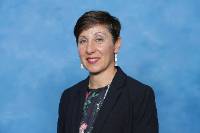
Professor
Spartan Complex 116
408-924-3069
Professor Bio
Dr. Tamar Z. Semerjian received her B.A. degrees in Human Biodynamics and Psychology
at the University of California, Berkeley, and her M.A. and Ph.D. in sport psychology
from the department of Health, Leisure, and Sport Studies from the University of Iowa.
She is the director of the
Silicon Valley Health Aging Partnership (SVHAP).
Dr. Semerjian is currently a Professor of Sport and Exercise Psychology and Chair
in the Department of Kinesiology at San José State University. She teaches several
courses in the department including undergraduate courses in sport psychology, sport
sociology, stress management, diversity stress and health, and graduate courses in
sport psychology and research methods. Dr. Semerjian’s research has included work
with older adults, individuals with spinal cord injury, and transgender athletes.
Generally, her research interests focus on exploring the experiences of marginalized
groups in exercise through the lens of both cultural studies and sport psychology.
In particular she has been interested in the translation of evidence-based health
promotion programs in the community, the effect of exercise on older adults’ self-perceptions,
and the influence of their exercise experience on long-term participation. Because
of her belief in the importance of praxis, she has been active in the aging community,
implementing exercise programs that are affordable and accessible to diverse populations
of older adults.
Education
Ph.D. University of Iowa - Health, Leisure, and Sport Studies (Emphasis: Sport Psychology)
Certificate in Aging Studies; University of Iowa, Iowa City. 1999.
M.A. University of Iowa - Health, Leisure, and Sport Studies (Emphasis: Sport Psychology)
B.A. University of California at Berkeley - Human Biodynamics (Emphasis: Sport Psychology
and Muscle Physiology)
Expertise, Research & Teaching Interests
My area of expertise focuses on the psychology and cultural studies aspects of exercise
across a variety of populations and contexts. My dissertation research focused on
older women’s physical self-perceptions and how they related to their physical activity
participation. I have taught courses in aging and physical activity, as well as implemented
community based partnerships which have allowed students to learn more about exercise
and aging through service learning opportunities. I was the founder of the
Silicon Valley Healthy Aging Partnership, which continues to support community based organizations to offer evidence based-health
promotion programs throughout Santa Clara county. I have published a number of research
studies and chapters related to aging and physical activity.
In addition to a focus on aging, I have also worked in the area of disability as a
member of a research team that created a cutting-edge exercise program for individuals
with spinal cord injuries. My contribution to the team was to consider the psychological
and sociocultural impact of the exercise program. I have also worked with transgender
athletes, and have focused my research in this area as well, primarily in an effort
to advocate for increased inclusion of trans athletes within all sporting and physical
activity contexts. Most recently I have become interested in the use of fitness tracking
applications, and the ways that the use of fitness trackers and the social media that
is often used in conjunction with them impacts individuals’ physical activity experiences.
Courses Taught
KIN 69 Stress Management
KIN 164 Sport Sociology
KIN 167 Sport Psychology
KIN 169 Diversity Stress and Health
KIN 267 Sport Psychology
Selected Publications
Semerjian, T. Z. (in press). Making space: Transgender athletes. In V. Krane (ed.) Sex, Gender, and
Sexuality in Sport. Oxon, UK: Taylor and Francis.
Jeffries, E. C., Hoffman, S. M., de Leon, R., Dominguez, J. F., Semerjian, T. Z.,
Melgar, I. A., et al. (2015).
Energy expenditure and heart rate responses to increased loading in individuals with
motor complete spinal cord injury performing body weight–supported exercises. Archives of Physical Medicine & Rehabilitation, 96(8), 1467-1473.
Butryn, T. M., LaVoi, N. M., Kauer, K.,
Semerjian, T. Z., & Waldron, J. J. (2014).
We walk the line: An analysis of the problems and possibilities of work at the sport
psychology-sport sociology nexus,
Sociology of Sport Journal, 31, 162-184.
Semerjian, T. Z. (2013). Stories from the basement: Narratives on disability. In R. J. Schinke & R.
Lidor (Eds.),
Sport for Peace and Social Justice. Nova Science Publishers.
Semerjian, T. Z. (2010). Disability in sport and exercise psychology. In T. V. Ryba, R. J. Schinke,
& G. Tenenbaum (Eds.),
The Cultural Turn in Sport Psychology (pp. 259-284)
. Morgantown, WV: Fitness Information Technology.
Semerjian, T. Z. (2016). Transgender athletes in inclusive sport spaces. Paper presented at the Social Justice through Sport and Exercise Psychology Conference,
Bowling Green, OH.
Semerjian, T. Z. (2016). Infusing social justice into our teaching. Paper presented at the Social Justice through Sport and Exercise Psychology Conference,
Bowling Green, OH.
Semerjian, T. Z. (2015). Measuring fitness one step at a time. Paper presented at the North American Society for the Sociology of Sport Conference,
Tampa Bay, FL.
Semerjian, T. Z. (2015). A neo-liberal project or community-based participatory research?: A critical look
at the Silicon Valley Healthy Aging Partnership. Paper presented at the International Society for the Sociology of Sport, Paris, France.
Undergraduate/Graduate Student Research Supervision
Daniel Vega. Topic: An Autoethnographic Examination of the Embodied Experience of
Transitioning While Completing P90X (In progress)
Lisa Lund. Topic: A Comparison of Motivation Patterns among Group-on and Traditional
Bootcamp Participants. (Graduated Summer 2014)
Allan Jong . Title: An Examination of Collegiate Ultimate Frisbee Players’ Values
of Sportspersonship. (Graduated Fall 2011)
Kelley Cadungug. Title: Christian Football Players: Negotiating the Conflicts Between
Sport and Personal Faith (Graduated Fall 2010)
Candice Davis. Title: Confidence Levels of Athletes Returning to Play after Surgery
and Rehabilitation (Graduated Fall 2010)
Janet Snider. Title: Determining Athlete Gender Preference for Athletic Trainers (Graduated
Fall 2010)
Gina Biviano. Title: Athletic Trainers’ Comfort and Competence in Addressing Psychological
Issues of Athletes (Graduated Summer 2010)
Alexis Smith. Title: A Qualitative Analysis of Motivation of Elite Female Triathletes
(Graduated Summer 2010)
Juliet Rose. Title: Self-Objectification and Body Shame as Predictors of Sports Participation.
(Graduated Summer 2008)
Daniel Murphy. Title: Sociocultural Histories of Professional Soccer in the United
States (Late 1800s to the Present). (Graduated December 2007)
Erin Siebert, Ph.D.
Associate Professor
Spartan Complex 173D
(408) 924-3207
erin.siebert@sjsu.edu
Professor Bio
As an educator I prioritize real world experiences from my time spent as an itinerant
K-12 adapted physical education specialist and utilize these examples to illustrate
how to connect concepts and theories presented in class to actual teaching practices.
I have taught courses focusing on adapted physical activity and physical education
teaching methods. While at San Jose State I look forward to working with the Timpany
Center to provide and promote inclusive aquatic and land based activities for individuals
with disabilities. I have previously served as a student representative on the National
Consortium for Physical Education for Individuals with Disabilities board, working
as part of team to put on the annual conference and for the advocacy of quality physical
education for individuals with disabilities. As a new faculty member I look forward
to participating in the deeply routed tradition of teaching excellence and am passionate
about developing well trained and highly qualified physical education teacher candidates.
Education
Doctorate – Oregon State University
Master of Public Health – Oregon State University
Master of Science – University of Wisconsin - Lacrosse
Bachelors of Science – University of Wisconsin - Madison
Expertise, Research & Teaching Interests
My research works to address inequalities faced by individuals with disabilities in
physical activity/education settings and enhances health and wellness through the
promotion of physical activity for this population. I have previously examined the
effect of policies and social influences on promotion of physical activity for individuals
with disabilities. My areas of expertise include adapted physical activity/education,
physical education, and public health (i.e., health promotion).
Courses Taught
Intro to Adapted Physical Activity – Oregon State University
Power and Privilege in Sport – Oregon State University
Selected Publications
Leung, C.W., Yun, J., & Siebert, E.A. (in press). Measuring physical activity with accelerometers for individuals with intellectual
disability: Systematic review, Anticipated Journal - Journal of Intellectual Disability Research, Accepted on June 2017.
Siebert, E. A., Hamm, J., & Yun, J. (2016). Parental Influence on Physical Activity of Children with
Disabilities. International Journal of Disability, Development and Education, 0(0), 1–13. https://doi.org/10.1080/1034912X.2016.1245412
Pitchford, E. A., Siebert, E., Hamm, J., & Yun, J. (2016). Parental perceptions of physical activity benefits for
youth with developmental disabilities. American Journal On Intellectual And Developmental Disabilities, 121(1), 25-32
Selected Presentations
Hamm, J., Pawlowski, J., Siebert, E. A., Beamer, J., & Yun, J. (2016, September). The Effects of a Service Learning Program
on Acceptance of Diversity, Poster Session at the biannual conference of the North
American Federation of Adapted Physical Activity Symposium, Alberta, Canada.
Leung, C. W., Yun, J., & Siebert, E. A. (April, 2016). Measuring PA with Accelerometer for Individuals with ID: Systematic
Review, Poster Session at the annual convention of the Society of Health and Physical
Educators of America, Minneapolis, MN.
Hamm, J. L., Siebert, E.A., Pawlowski, J.K., Beamer, J., & Yun, J. (2015, March). How Volunteering with Youth
with Disabilities Influences Acceptance of Diversity, at the annual conference of
the Society of Health and Physical Educators of America, Seattle, WA.
Siebert, E.A., Hamm, J., Pawloski, J., & Nery-Hurwit, M. (2014, November). How to Use Social Media
to Promote Physical Activity and Health Behaviors for Individuals with Disabilities,
at the annual American Public Health Association conference, New Orleans, LA.
Siebert, E.A., Hamm, J., & Yun, J. (2014, October). Parental Influences on Physical Activity Participation
of Children with Disabilities, at the biannual conference of the North American Federation
of Adapted Physical Activity Symposium, Ann Arbor, MI.
Siebert, E.A., Brooksby, C., Holladay, K., Mason, A., Roth, K., Strong, K., & Hansmann, R. (2014,
April). Using Technology to Adapt and Promote Physical Activity, at the annual convention
of the Society of Health and Physical Educators of America (formerly AAHPERD), St.
Louis, MO.
Undergraduate/Graduate Student Research Supervision
NA
Professional Affiliations
Society of Health and Physical Educators of America (SHAPE America) [formerly American
Alliance of Health, Physical Education, Recreation, and Dance (AAHPERD)]
National Consortium for Physical Education for Individuals with Disabilities (NCPEID)
California Association for Health, Physical Education, Recreation and Dance (CAHPERD)
Emily Wughalter, Ed.D.
Professor
Spartan Complex 166
(408) 924-3043
emily.wughalter@sjsu.edu
Professor Bio
Dr. Emily H. Wughalter received her doctorate from the University of Georgia. She
is a professor in the Department of Kinesiology. At the graduate level she teaches Quantitative Research Methods in Kinesiology and Motor Learning. She teaches Motor Learning, Measurement and Evaluation, and Writing Workshop in the undergraduate program. Dr. Wughalter has been a dedicated scholar and distinguished
professional throughout her career. Her scholarship is in motor learning, research,
and measurement; in addition she has made a profound commitment to social justice
and diversity. She is a strong advocate for girls and women in sport at the local
and national levels. Dr. Wughalter has published 28 journal articles, a book, a book
chapter, and 5 book reviews. She has given over 50 professional presentations.
She is a Fellow in the Research Consortium of AAHPERD. Dr. Wughalter is recognized
for her teaching expertise and service at the university, having won the Outstanding
Professor Award for San Jose State University in 2009. In 2011, she received the Outstanding
Service Award, and in 2003 she received the Outstanding Professor Award from the College
of Applied Sciences and Arts. Dr. Wughalter is a national leader in the broad field
of Kinesiology. She served as the President of the Research Consortium, and two-time
member of the AAHPERD Board of Governors. She served on and chaired countless committees
for AAHPERD (now SHAPE America), the Research Consortium, and NAGWS. In recognition,
she received the Mabel Lee Award, the Distinguished Service Award from the Research
Consortium, the NAGWS Honor Award, and the AAHPERD Honor Award. In 2014, Dr. Wughalter
was selected AAHPERD’s highest recognition when she was received the Luther Halsey
Gulick Medal.
Education
Ed.D. University of Georgia - 1981
M.S. University of Colorado - 1978
B.A. Herbert H. Lehman College - 1977
Expertise, Research & Teaching Interests
I am interested in issues and problems as they relate to applications in kinesiology
and in human factors and ergonomics.
Courses Taught
KIN 100W - Writing Workshop in Kinesiology
KIN 166 - Motor Learning Lecture and Lab
KIN 175 - Measurement and Evaluation
KIN 250 - Quantitative Research Methods in Kinesiology
KIN 266 - Principles and Concepts of Perceptual Motor Learning
Selected Publications
Book Chapter
Staurowsky, E., Hogshead-Makar, N., Kane, M. J., Wughalter, E. H., Yiamouyiannis, A., & Lerner, P. (2007). Gender equity in physical education and
athletics. In Handbook for Achieving Gender Education through Education (pps. 381-410). New Jersey: Lawrence Erlbaum Publishers.
Journal Editorship
Bennett, R. S., & Wughalter, E. H. (Eds.). (1999). Social Justice and Diversity. Quest, 51 (4).
Journal Articles
Kahanov, L., Roberts, J., & Wughalter, E. H. (2010). Adherence to Drug-Dispensation and Drug Administration Laws and Guidelines
in Collegiate Athletic Training Rooms: A Five-Year Follow-up Survey. Journal of Athletic Training, 45 (3), 299-305.
Alnaser, M., & Wughalter, E. H. (2009). Effect of chair design on ratings of discomfort. Work: A Journal of Prevention, Assessment, and Rehabilitation, 34, 223-234.
Lilien, J. S., & Wughalter, E. H. (2004). Effect of graphic input device and repetition on wrist posture. Annual Proceedings of the Human Factors Ergonomics Society, 48, 1469-1473.
Christensen, C. L., Payne, V. G., Wughalter, E. H., Yan, J., Henehan, M., & Jones, R. (2003). Physical activity, physiological and psychomotor
performance: A study of variously active older adult men. Research Quarterly for Exercise and Sport, 74 (2), 136-142.
Wughalter, E. H. (2002). Transgressions and transcendence: Surpassing disciplinary boundaries. Quest, 54, 242-251
Selected Presentations
Wughalter, E. H., Cacola, P., Richardson, K., & Polsgrove, M. AAHPERD National Convention in St. Louis,
Missouri on April 4, 2014.
Wughalter, E.H. Reaching beyond the walls: a case study of the San Jose State University Program
in Human Factors and Ergonomics. 2014 NAKHE Collaborative Conference and International
Congress. Steps into the Future: Exploring Opportunities and Facing the Challenges
of the 21st Century in San Diego, CA presented on January 10, 2014.
Wughalter, E.H. Showcasing Your Lab: The Applied Motor Behavior Laboratory at San Jose State University.
Human Factors and Ergonomics Society International Meeting. San Diego, CA on October
3, 2013.
LaVoi, N., Gao, Y., Gill, D., Wughalter, E. H., & Ransdell, L. Conducting Research with Female Athletes: Strategies for Success.
AAHPERD National Convention in Charlotte, North Carolina on April 24, 2013.
Hide, T., Wughalter, E.H., Kao, J.C., & Adams, K.J. Effects of Mouth Guard Condition and Movement Complexity on Simple Reaction Time.
Poster presentation at the 12th Measurement and Evaluation Symposium: Approaches in Measuring and Assessing Physical
Activity with AAHPERD Boston, MA on March 13, 2012.
Wughalter, E.H. Panelist: Strategies for Inclusive Excellence in the Classroom and the Curriculum.
Presentation at the NAKPEHE National Conference in San Diego, CA on January 5, 2012.
Undergraduate/Graduate Student Research Supervision
Ford, S. (in progress). Contextual interference effects on learning a continuous
task.
Rogers, S. (in progress). Plan B Project: Development and concurrent validity of a piano redesign held in the hands.
Sobramanian, S. (in progress). Design and evaluation of an e-reader interface operated
by brain muscular control.
Wendt, J. (2014). Plan B Project: Expertise and point-of-intercept on visuomotor delay and temporal accuracy in a virtual
motion task.
Dhaldi, S. (2013). Plan B Project: Perceptions of San Francisco Giants’ fans on the transition of the Oakland A’s to
the Silicon Valley.
James, C. (2013). Plan B Project: L3 Anterior vertebral body fracture in a collegiate male Gymnast.
Cai, S. (2013). Plan B Project: Can human powered generators be the next green energy?
Rickord, A. (2012). Plan B Project: Early childhood fundamental motor skills manual.
Powell, M. (2012). Plan B Project: Sensitivity and specificity of the Sport Concussion Assessment Tool 2.
Dykema, L. (2012). Plan B Project: Removal of a football helmet and shoulder pads: an instructional video.
Greenhaw, A. (2012). Plan B Project: Concussion management self-efficacy by California Interscholastic Federation Officials
and California High School Certified Athletic Trainers.
Starnes, R. (2011). Plan B Project: A new conservative treatment model forlumbar disc herniation.
Hide, T. (2011). Effects of a mouth guard and task difficulty on simple reaction
time.
Starr, J. (2010). Plan B Project: Effects of Wii™ on balance training of college aged individuals.
Pogue, M.G. (2010). Plan B Project: A review of evidence based research on instrument assisted soft tissue mobilization
tools.
Professional Affiliations
SHAPE America, formerly American Alliance of Health, Physical Education, Recreation
and Dance
National Association for Kinesiology in Higher Education
North American Society for the Study of Psychology of Sport and Physical Activity
Western Society for Physical Education College Women
Human Factors and Ergonomics Society
Women’s Sports Foundation
Lecturer Faculty
Daniel Bohigian, MA

Lecturer
Spartan Complex 106
daniel.bohigian@sjsu.edu
Professor Bio
I began academic career at San Jose State University as a student in the Spring of
2009 after transferring from the College of San Mateo. After completing both my BA
in philosophy in 2011 and my MA in Philosophy in 2014 from SJSU, a last minute and
short notice, yet ideal opportunity to teach for the Kinesiology department opened
up over the Summer of 2014 shortly after I received my diploma. As a freshly minted
MA in philosophy, along with being life-long sports fan, teaching "Philosophical Perspectives
of Sport" for the Kinesiology department was, and remains to be, a nice blend between
passions. As a graduate student, I taught two introductory philosophy classes and
enjoyed it overall. To be honest, I did not plan on teaching following my graduation.
However, I remain grateful that my last-minute appointment as a lecturer for the KIN
department has lead me to a steady full-time career which now includes teaching KIN
100w, "Writing Workshop" along with serving the KIN department and KIN students as
Undergraduate Advising Manager.
When I am not in the classroom teaching or fulfilling my duties as advising manager,
I can be found training Brazilian jiu-jitsu (BJJ), playing guitar, and hanging out
with my wife and our two cats, and diligently following the San Francisco Forty Niners
and San Francisco Giants. I am currently a second degree black belt in BJJ and actively
train and teach the discipline to this day. My competitive career is most likely over,
but the physical and mental rigors of training and preparing for BJJ competition has
served me well in my professional career in academics and life in general!
Education
Bachelor of Arts, Philosophy, San Jose State University, San Jose, California, 2011.
Master of Arts, Philosophy, San Jose State University, San Jose, California, 2014
Expertise, Research & Teaching Interests
Regarding KIN 161, "Philosophical Perspectives of Sport", my personal research interests
revolve around the general moral and ethical issues in contemporary and competitive
sport. In my classes, I stress the emphasis of fan behavior and the complexities of
the fan, player, and team relationship. As a philosophy course under the banner of
the KIN department, the importance of the body (a non-dualistic approach) is another
concept I focus on. In addition and more specifically, athlete objectification, moral
and ethical compartmentalization within a game/sport occurrence, the battle between
autonomy and paternalistic interference in regard to facing danger in sport, and the
ever-present moral and ethical issues facing "high-contact" sports such as football,
MMA, and boxing are common themes that a student will encounter in KIN 161.
For KIN 100w, "Writing Workshop", in addition to enforcing APA style guidelines and
requirements, I emphasize the importance of consistency and continuity in crafting
scholarly literature reviews. I stress the importance of pursuing topics of research
that appeal personally to students, whether it be a personal connection or general
curiosity. I firmly believe that if students pursue topics they are passionate about,
the research and writing processes are more enjoyable, sustainable, and successful.
I am most definitely the professor that reads every line of every major writing assignment
submitted for the course. Starting with the formal topic proposal, to the annotated
bibliography, up until the final draft of the culminating assignment (scholarly literature
review), I make it a point to put in the effort in grading and evaluating my students
that my students put into their own research and writing.
In my teaching and my advising, I strongly believe myself, my students, and my advisees
work in unison, ensuring effort and attention is reciprocated and sustained.
Courses Taught
Philosophy 10, Introduction to Philosophy (Fall 2013)
Philosophy 57, Introduction to Logic (Spring 2014)
Kinesiology 161, Philosophy of Sport (Fall 2014 - Present)
Kinesiology 100w, Professional Writing (Spring 2016 - Present)
Kinesiology 260, Philosophy of Sport - Graduate Seminar (Fall 2015)
Selected Publications
Info coming soon.
Selected Presentations
Debate Team Leader/Debate Presenter, Chase Utley’s Slide: Fair or Foul? WSKW Conference,
Fall 2016, Reno, Nevada.
Undergraduate/Graduate Student Research Supervision
NA
Research Supervision
Undergraduate research supervision: M.P. Gonzales, "Pseudoscience in the Fitness Industry:
Differentiating Between Fact and Fiction", Fall 2016.
Undergraduate research supervision/WSKW conference supervision: E. Lenh, "The Negative
Effects of Technological Dependence on the Mental and Physical Health of Youths and
Adults", Spring 2020.
Undergraduate research supervision/WSKW conference supervision: C. Doan, "Evaluating
Traditional Sports to Propose a Future Direction for eSports Management", Spring 2020.
Undergraduate research supervision/WSKW conference supervision: M. Moore, "Concussion
Treatment: Benefits of Active Recovery", Fall 2021.
Matthew Crockett, MA
Lecturer
Spartan Complex 170
matt.crockett@sjsu.edu
Professor Bio
Sport and physical activity is a second language for me. I grew up in the Bay Area
playing a variety of sports, eventually settling on swimming and water polo as my
main competitive outlet in high school. At UC Davis, I was a founding member of the
men’s water polo club team in addition to competing on the university’s triathlon
team. With a degree in genetics and a minor in english, I found a job after college
as a writer for a small biotech media company called BioCentury Publications, where
I eventually became the editor and manager of BioCentury Extra, a daily paper covering
the latest biopharma news around the world.
After 5 years at BioCentury, I decided to pursue a career in sport and fitness and
enrolled in the SJSU graduate program in Kinesiology. At the same time I became a
Certified Strength and Conditioning Specialist (CSCS) through the National Strength
and Conditioning Association (NSCA), and completed additional coaching certifications
in Olympic weightlifting and Russian kettlebells. During graduate school I served
as the head coach of the weightlifting club at VIS Performance in Belmont, where I
also trained private clients and taught group fitness classes.Although my studies
in graduate school focused on exercise physiology, I developed a research interest
in the social aspects of sport and fitness. My graduate thesis, A Spatial Ethnography of the CrossFit Gym, explored the social significance of CrossFit, a recently popular competitive group
fitness regimen that incorporates a variety of different exercise methods. When I’m
not teaching, I can be found training clients (and myself, occasionally) out of my
garage gym in San Mateo, and spending time with my wife, Laura, and our rambunctious
corgi, Pudley, whose adventures you can follow on Instagram @pudleythecuddlycorgi.
Education
Master of Arts Degree in Kinesiology, San Jose Staté University, San José, CA
Bachelor of Science Degree in Genetics, University of California at Davis, Davis, CA
Expertise, Research & Teaching Interests
My expertise and teaching interests bridge the gap between the “hard” and “soft” sciences.
I am interested in the practical application of physiology and biomechanics to increase
strength and performance in athletes. However, I am also curious about the social
significance of exercise and training in a moment when physical labor has never mattered
less.
Courses Taught
KIN 100W: Writing Workshop for Kinesiology
KIN 101: Sport in America
KIN 163: Physical Fitness & Nutrition
KIN 169: Diversity, Stress, & Health
G.E. Course Coordinator Kinesiology – KIN 169, Fall 2017 to present
Selected Publications
Crockett, M. C. & Butryn, T. M. (2017). Chasing Rx: A spatial ethnography of the CrossFit gym. Sociology of Sport Journal. Advance online publication. https://doi.org/10.1123/ssj.2017-0115
Crockett, M. (2017, November 7). CrossFit: Reimagining the body in a bodiless world [Blog post].
Retrieved from https://thesocietypages.org/engagingsports/2017/11/07/crossfit-reimagining-the-body-in-a-bodiless-world/
Professional Affiliations
National Strength & Conditioning Association, Member since 2013
Farzaneh Ghiasvand, Ph.D.
Lecturer
Exercise Physiology
408-924-1919
Spartan Complex 170
Arman P. Medina
Lecturer
650-302-6824
Spartan Complex 170
Professor Bio
An Applied Economics major, Mr. Medina earned a Bachelor of Science degree from the
University of San Francisco. Mr. Medina garnered his Master of Arts degree from the
University of San Francisco’s Sport Management Graduate Program, where was awarded
a grant for the research portion of his Master’s project titled “Do the Six Pro Teams
in the Bay Area Compete for Fans?” Currently, Mr. Medina is working towards an Executive
PhD in business at the University of Denver. Mr. Medina has been teaching courses
at San José State University to undergraduate and graduate students since Fall 2014.
Mr. Medina taught at Menlo College School of Business from Spring 2018 to Spring 2025
and his area of expertise is Sport Management. Mr. Medina's research interest lies
in sport fan behavior.
A San Francisco Bay Area native, Mr. Medina has over 25 years of sales experience
and was the Business Development Director for SportsEconomics, where he managed market
research teams. He was also responsible for sales and marketing. In less than three
years, Mr. Medina’s team was responsible for 16 market research events that gathered
over 12,000 surveys. Additionally, Mr. Medina has done work for Specialized Bicycles,
putting together a sales seminar and a sales manual for their inside sales team. He
also developed a marketing plan for Trigon Bicycles USA.
Education
University of Denver - IN PROGRESS PhD in Business (Expected Spring 2027)
University of San Francisco - Master of Arts in Sport Management (May 2008)
University of San Francisco - Bachelor of Science in Applied Economics (December 2005)
Expertise, Research & Teaching Interests
Sport Fan Behavior, Sport Management, Sport Marketing, Economics of Sport, Operations
& Sales
Courses Taught
KIN 70 Intro to Kinesiology
KIN 100W Writing Workshop
KIN 151 Sport & Fitness Marketing
KIN 152 Theory of Sport & Fitness Management
KIN 153 Sport Facility & Event Management
KIN 281 Legal & Ethical Aspects of Sport
KIN 283 Management, Leadership & Communication in Sport
KIN 284 Financial Aspects of Sport
KIN 286 Independent Study
KIN 298 Special Studies - Non-Thesis Master’s Project
Selected Publications
Chachad, R., Pradhan, S., & Medina, A. P. (2024). This is fine: The impact of blowouts
on subsequent game performance in the National Hockey League. Frontiers in Sports
& Active Living.
https://doi.org/10.3389/fspor.2023.1241014
Selected Presentations
Pradhan, S., & Medina, A. P. (2024). “Yeah, Here We G(l)o(bal)”: The impact of the
National Football League International series on tourism intentions and consumer behaviors.
Ninth International Conference on Tourism & Leisure Studies.
https://cgscholar.com/cg_event/events/K24en/proposal/71987
Undergraduate/Graduate Student Research Supervision
KIN 286 Proposal to Introduce Gymnastics Program to Athletic Performance at San Jose
State University - Everette A. Goldberg (Spring 2015)
KIN 286 Recruiting 101: A Guide for the Division I College Football Recruiter - Marc
Baker (Fall 2015)
KIN 286 Secondary market listings in Major League Baseball - Jessica Bracamontes (Fall
2015)
KIN 298 The Correlation Between the Top 10 Football Programs’ Revenues, Expenses and,
Winning - Aaron Van Laar (Fall 2017)
KIN 298 A Spring Recruiting Manual for the Division I Football Program - Marc Baker
(Spring 2016)
KIN 298 Harvesting the Full Development of the Student Athlete - Brittany Taylor (Fall
2016)
KIN 298 Examining Demand-Based Ticket Pricing in Collegiate Athletics - Dominic Urrtia
(Spring 2015)
KIN 298 The Uni-President 7-Eleven Lions Marketing Plan: Increasing Fan Loyalty and
Brand Equity - Chiao-Hsin “Jessie” Hsueh (Fall 2015)
Daniel Murphy, MA
Lecturer
CFA Representative
Spartan Complex 110
(408) 924-3028
daniel.murphy@sjsu.edu
Professor Bio
Mr. Daniel Murphy completed his MA in sport psychology and sport sociology from SJSU
with distinction, after earning a BA degree with university and department honors
from UCSC in American Studies with a focus on film and music. He is a multi-disciplinary
scholar. He lectures on a range of topics including film studies, sport studies, sport
psychology, sport history, critical thinking, research writing in the sciences, cultural
competency, health psychology, stress and coping, community health, and global humanities.
He is a published author in sport psychology and sport sociology journals, and an
active peer reviewer for academic journals and textbooks. Daniel's current research
is centered on stress and coping in elite athletics and critical media analysis in
sport. In addition, Daniel has managed the department social media channels and the
department website.
Education
Master of Arts Degree in Kinesiology, Sport Sociology and Sport Psychology Focus
San Jose Staté University, San José, CA
Bachelor of Arts Degree in American Studies, History & Popular Culture Focus
University of California at Santa Cruz, Santa Cruz, CA
Licenses
National Soccer Coaches Association of America National Diploma, July 2001
US Soccer Coaches Association National B License, July 2005
Expertise, Research & Teaching Interests
Sport Psychology & Coaching
Global Sport Studies & Cultural Anthropology
Film Studies, American Sport Films & Documentaries
Soccer Cultures in North American, Central American, and Caribbean Regions
Ethnomusicology & 20th Century American Music History
Courses Taught
Kinesiology 68 Visual Representations of Sport and Culture
Kinesiology 69 Stress Management
Kinesiology 96 MUSE: American Music History
Kinesiology 100W Writing Workshop
Kinesiology 101 Sport in America
Kinesiology 111 Global Sport Cultures
Kinesiology 168 Psychology of Coaching
Kinesiology 169 Diversity, Stress, and Health
Health Science 135 Multicultural Health
Health Science 25 Health Team Building
Health Science 1 Understanding your Health
Academic Journal Peer Editor
International Journal of Exercise & Sport Psychology
Qualitative Research in Sport, Exercise and Health
Sociology of Sport Journal
Sport in Society
Selected Publications
Kristiansen, E., Murphy, D., & Roberts, G. (2012). Organizational stress and coping in
US professional soccer. Journal of Applied Sport Psychology.
Shifflett, B., Murphy, D., Ghazideneh, F., & McKippik, M. (2015). Gender bias in sport
analytics. Sport & Media.
Murphy, D. (2009). Sociocultural histories of professional soccer in the US in the 20th
century. Self-Published Online.
Selected Presentations
Presenter, CASA Communication Technology Presentation, Presented to Department
of Kinesiology, April 2012
Presenter, Stress Management Presentation, Presented to SJSU Student Business
Club, Spring 2011
Presenter, Stress Management, ATC, and Graduate Experience, Presented to 1st year
SJSU KIN Graduate AT Students, Fall 2011 – present
Presenter, Stress Management Presentation, Presented to SJSU Student Success
Workshop, Fall 2010
Guest Speaker, International Soccer, International Sport History, Department of
Kinesiology Graduate Program, Fall 201
Guest Panelist, Concussions & Youth Sports, EqualTime TV Show, KQED/SJSU Communications, Spring
2015
Undergraduate/Graduate Student Research Supervision
Student Internships
Stress Management KIN, CASA, SJSU & House on the Hill, August 2008 – August 2009
Research Supervision
Graduate Program – Advisor – 298 Project – David Yeh – Sport Mascots - Fall 2014
Graduate Program – Advisor - 298 Project – Garrett Cafful – Sport Media Internships
– Spring 2015
Undergraduate – KIN 180 – Vannuck Uy – Stress and Performance in Long Distance Recreational
Runners – Spring 2015
Undergraduate – KIN 180 – Brian Robles – Knee Osteoarthritis – Fall 2015
Undergraduate – KIN 180 – Vannuck Uy – Stress and Performance in Long Distance Recreational
Runners – Fall 2015 – cont’’d
Undergraduate – KIN 180 – John Horigan – Research Assistant – Sport Media & Gender
– Spring 2015/Fall 2015
Student Publication
Sullivan DP. (2015). Retraining running gait to prevent lower extremity overuse
injuries. Undergraduate Journal of Kinesiology, 10(2).
Student Club Advising
KIN Ambassadors August 2011 – August 2012
SJSU Women’s Club Rugby August 2011 – August 2012
SJSU Fencing Club August 2017 – present
Department of Kinesiology
Interim Advising Manager – Summer 2015, Summer 2016, Summer 2017
Professional Affiliations
National Soccer Coaches Association of America, Member Since 2000
US Soccer Coaches Association, Member Since 2000
California Youth Soccer Coaches Association, Member Since 2000
Shirley Reekie, Ph.D.
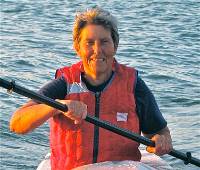
Professor
Spartan Complex 173K
(408) 924-3020
shirley.reekie@sjsu.edu
Professor Bio
Shirley Reekie received an undergraduate degree from I.M. Marsh College of Physical
Education, Liverpool, and the University of Liverpool, UK and a master's degree from
the University of Leeds. Following three years teaching physical education, English
and geography at Keswick School, Shirley earned a Ph.D. from The Ohio State University
with a dissertation entitled "A History of Sport and Recreation for Women in Great
Britain 1700-1850." Shirley came to San Jose State University in 1982 and had one
book "Sailing Made Simple," published in 1986, and another "Bean Bags to Bod Pods"
that chronicles the Kinesiology Department's 150 years, published in 2012. Her third
book is a history of Trearddur Bay Sailing Club published in 2019. She volunteers
with Sea Scout Ship #300, SSS "Spartan," based in Alviso.
Education
PhD, The Ohio State University, 1982
MA, The University of Leeds, 1976
BEd (Hons), I.M.Marsh College of Physical Education/The University of Liverpool, 1975
Expertise, Research & Teaching Interests
Shirley's research and teaching interests are in sport history and comparative sport
studies. While holding various leadership positions, she has lectured in the UK,
Ireland, Germany, the former USSR. People’s Republic of China, the former Czechoslovakia,
Belgium, Kuwait, Japan, Canada, and Kenya. Main areas of expertise are sport history
and international/comparative sport; sailing, rowing, kayaking.
Courses Taught
Sailing, rowing, kayaking, undergrad and grad sport history, writing workshop, intro
to Kinesiology, senior seminar, research methods, MUSE classes, and a variety of teacher
education classes and supervision; recently served as department chair.
Selected Publications
Reekie, Shirley H. M. (2012). Bean Bags to Bod Pods: A History of 150 years of San
José State University’s Department of Kinesiology. Minneapolis: Mill City.
Reekie, Shirley H. M. (2005). Sailing. In Encyclopedia of World Sport (Vol. 3,
pp. 1310-1321). Great Barrington, MA: Berkshire.
Selected Presentations
Reekie, Shirley H. M. (2014) “Being a Department Chair.” Invited presentation at American
Kinesiology Association, Santa Clara, CA.
Reekie, Shirley H.M. (2009). “University Teaching.” Featured speaker at CAHPERD Conference,
Santa Clara, CA.
Reekie, Shirley H. M. (2007) “Olympics, past, present and future: What can other
countries and other times teach us? Shenyang Sport University, PRC.
Reekie, Shirley H. M. (2004) “Cricket—what it is and what it’s not; how to teach
the game” CAHPERD, 2004.
Reekie, Shirley H. M. (2003) “Does history matter? Teaching sport and physical
education history” AAHPERD.
Undergraduate/Graduate Student Research Supervision
Currently supervising undergraduate and graduate students in sport management; the
most recent thesis supervised was in 2014 , on Chinese wushu athletes’ training.
Professional Affiliations
NA
Sherveen Riazati, Ph.D.
Lecturer
Spartan Complex 173F
sherveen.riazati@sjsu.edu
Education
Doctorate of Philosophy from Northumberia University, Newcastle, United Kingdom
Expertise, Research & Teaching Interests
Biomechanics, Motor Behavior, Exercise Physiology, and Neurophysiology
Selected Publications
Riazati S, McGuirk TE, Perry ES, Sihanath WB and Patten C (2022) Absolute Reliability
of Gait Parameters Acquired With Markerless Motion Capture In Living Domains. Front.
Hum. Neurosci. 16:867474. doi: 10.3389/fnhum.2022.867474
Riazati, Sherveen, Nick Caplan, Marcos Matabuena, and Philip R. Hayes. "Gait and Neuromuscular
Changes Are Evident in Some Masters Club Level Runners 24-h After Interval Training
Run." Frontiers in Sports and Active Living 4 (2022): 830278.
Matabuena, Marcos, Marta Karas, Sherveen Riazati, Nick Caplan, and Philip R. Hayes.
"Estimating Knee Movement Patterns of Recreational Runners Across Training Sessions
Using Multilevel Functional Regression Models." The American Statistician just-accepted
(2022): 1-24.
McGuirk, Theresa E., Elliott S. Perry, Wandasun B. Sihanath, Sherveen Riazati, and
Carolynn Patten. "Feasibility of markerless motion capture for three-dimensional gait
assessment in community settings." Frontiers in Human Neuroscience (2022): 325.
De Martino, Enrico, Sauro E. Salomoni, Andrew Winnard, Kristofor McCarty, Kirsty Lindsay,
Sherveen Riazati, Tobias Weber et al. "Hypogravity reduces trunk admittance and lumbar
muscle activation in response to external perturbations." Journal of Applied Physiology
128, no. 4 (2020): 1044-1055.
Chynkiamis, Nikolaos, Nicholas D. Lane, Dimitrios Megaritis, James Manifield, Ioannis
Loizou, Charikleia Alexiou, Sherveen Riazati, Antonella LoMauro, Stephen C. Bourke,
and Ioannis Vogiatzis. "Effect of portable noninvasive ventilation on thoracoabdominal
volumes in recovery from intermittent exercise in patients with COPD." Journal of
Applied Physiology 131, no. 1 (2021): 401-413.
Riazati, Sherveen, Nick Caplan, Marcos Matabuena, and Philip R. Hayes. "Fatigue induced
changes in muscle strength and gait following two different intensity, energy expenditure
matched runs." Frontiers in bioengineering and biotechnology 8 (2020): 360.
Riazati, Sherveen, Nick Caplan, and Philip R. Hayes. "The number of strides required
for treadmill running gait analysis is unaffected by either speed or run duration."
Journal of biomechanics 97 (2019): 109366.
Tug, Alev, MA
Lecturer
Spartan Complex 170
alev.tug@sjsu.edu
Professor Bio
I am an SJSU graduate with an MA degree in Kinesiology and taught for the Kinesiology
Department back in 2004-2007. I am currently a lecturer in our department and teaching
general education, upper division, and activity classes for our department.
I received a B.S. degree in Management and have experience in business operations
including staff recruitment and training, and facility management. I worked as a business
systems analyst in the past and developed systems and procedures based on given rules
and regulations for any given business. I am also a Personal Trainer (CPT) through
the NASM and have worked with people with various physical and mental abilities.
I am a multi-national individual, Turkish-American, born and raised in Istanbul,
Turkey. I am also mother to my awesome daughter, Duru, and grandmother (!) to our
lovely cat, Dusty :). I strive to stay healthy and active as much as my body allows.
I love being outdoors, especially on the beach dancing with the waves of the ocean!
I truly believe in the importance of physical activity and health, and am passionate
about sharing my knowledge. I consider fitness a broad concept integrating a high
quality nutrition/supplementation, efficient recovery, accurate rehabilitation/healing
methods, and mental health. You can find me in the Exercise Physiology lab, YUH 233
most of the time.
Education
BS, Management, Middle East Technical University (Turkey)
MA, Kinesiology, San Jose State University
Ph.D (in progress), Applied Exercise Physiology, Hacettepe University (Turkey) to
be continued
Expertise, Research & Teaching Interests
Applied Exercise Physiology focusing on the metabolic demand of exercise, the effect
of high intensity interval training on the resting metabolic rate, and metabolism
and exercise.
Also done studies specifically on “Pregnancy and Exercise” and “Training for Climbing”.
Courses Taught
KIN/CHAD 67 Development of Human Potential (no longer offered)
KIN/CHAD 149 Children’s Health and Fitness
KIN/NuFS 163 Physical Fitness and Exercise
KIN 180 Senior Seminar
KIN 157 Physiological Assessments (Labs)
KIN 70 Introduction to Kinesiology (Labs)
Activity Courses:
KIN 31 Body Sculpting
KIN 32 Aerobics
KIN 34 Step Training
KIN 35 Beginning and Intermediate (35B)
Weight Training
KIN 36 Cross Training
Selected Publications
Plato, P., McNulty, M., Crunk, S. M., & Tug Ergun, A. (2008). Predicting lactate threshold
using ventilatory threshold. International Journal of Sports Medicine, 29, 732-737.
Selected Presentations
Master’s Thesis: Cardiovascular and Metabolic Responses to Noncontact Kickboxing in
Females. This study investigated whether noncontact cardio kickboxing elicits a sufficient
intensity to improve cardiorespiratory fitness and maintain body weight. Presented
at the American College of Sports Medicine Annual Meeting in Denver (2006).
Professional Affiliations
American College of Sports Medicine (ACSM) Professional Member
Activity Lecturer
Albert Ayers Jr.
Expertise: Dance
Phone Number: 408-745-0633
Office: SPX 170
Jovana Babic
Expertise: Tennis
Ryan Bartylla
Expertise: Jogging
Martha Behler
Expertise: Soccer
Office: SPX 170
Martin Bilello
Expertise: Team Handball
Lei Cai
Expertise: Badminton
Phone Number: 408-838- 8318
James Fonda
Expertise: Rugby
Office: SPX 170
Nicolas Fraire
Expertise: Archery
Michelle Gentry
Expertise: Ice Skating
Lemi Hayashi
Email: lemi.hayashi@sjsu.edu
Alberto Juarez
Expertise: Brazil Jiu-Jitsu
Email: alberto.juarez@sjsu.edu
Kristine Kirkendall
Expertise: Hiking and Backpacking
Office: SRAC 147
Michael Linnik
Expertise: Handball
Email: michael.linnik@sjsu.edu
Chris May
Expertise: Swimming
Phone Number: 408-924-3048
Office: SPX 173E
Richard Dick Montgomery, Ph.D.
Expertise: Weight Training, Volleyball
Phone Number: 408-924-3054
Office: SPX 173E
Mariella Morales
Expertise: Yoga
Email: mariella.morales@sjsu.edu
Miles Pascal - Gonzales
Expertise: Weight Training
Lee Pate
Expertise: Fitness and Exercise
Office: SPX 170
Peter Rodriquez
Expertise: Karate
Email: peter.rodriguez@sjsu.edu
Kelsea Rossow
Expertise: Scuba
Email: kelsea.rossow@sjsu.edu
Jennifer Schachner, EdD
Expertise: Timpany Center Director
Phone Number: 408-283-9036
Veneita Schult
Expertise: Cardio Kickboxing and Yoga
Email: veneita.schult@sjsu.edu
David Stanton
Expertise: Volleyball
Email: david.stanton@sjsu.edu
Michael Swain
Expertise: Judo
Email: michael.swain@sjsu.edu
Jack Wada
Expertise: Aikido
Email: jack.wada@sjsu.edu
Daniel Weng, Ph.D.
Expertise: Martial Arts
Office: SPX 170
Chris Whalen
Expertise: Golf
Email: chris.whalen@sjsu.edu
David Williams
Expertise: Judo
Email:david.williams@sjsu.edu
Office: SPX 170
Barain Win
Expertise: Pilates, Serobics, Step Training, and Yoga
Email: barani.win@sjsu.edu
Staff
Vy Bui
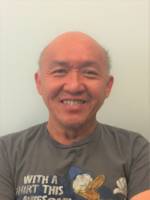
Instructional Support Technician I
Spartan Complex 108
408-924-3045
vy.bui@sjsu.edu
Manuel Diaz
Instructional Support Assistant III
Spartan Complex 128
408-924-3049
manuel.diaz@sjsu.edu
Winston Kwong
Administrative Support Coordinator I
Spartan Complex 103
408-924-3011
winston.kwong@sjsu.edu
Jodi Mercer
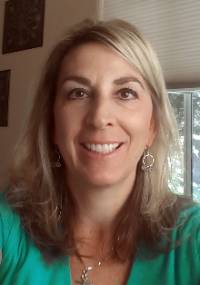
Administrative Analyst/Specialist
Spartan Complex 105
408-924-3012
jodi.mercer@sjsu.edu
Emeritus Faculty
| Name |
Years of Service |
| Dr. Susan Wilkinson |
24 Years
|
| Sandra Olliges |
12 Years
|
| Dr. Virgil Gregory Payne |
35 Years
|
| Dr. Nancy Megginson |
28 Years
|
| Dr. Bethany Shifflett |
32 Years
|
| Dr. Masaaki Tsuruike |
10.6 Years
|
| Dr. Gong Chen |
34 Years
|












